
About the conference
Bangladesh is at a critical juncture where strengthening democratic governance and accountability has become essential to address long-standing issues of institutional effectiveness and inclusivity. Recent governance challenges have highlighted the need for comprehensive reform, particularly in ensuring that the voices of marginalised communities, including women and LNOB (Leave No One Behind) groups, are represented at all levels of governance. There is an urgent demand for institutional change to empower citizens and create a people-centric governance model that promotes transparency, accountability, and inclusivity.
As Bangladesh approaches upcoming local and national elections, this conference seeks to influence the evolving electoral debate by emphasising the role of citizens, particularly those from marginalised groups, in governance processes. The focus will be on establishing accountability mechanisms across the design, implementation, and delivery of policies and services. By linking LNOB communities with public service delivery systems—such as health, education, social protection, and security—the conference aims to develop strategies for a governance model that reflects the perspectives and needs of the entire population.
The Citizen’s Conference 2024, organised by the Citizen’s Platform for SDGs, Bangladesh, and supported by the United Nations Development Programme (UNDP) and Swiss Agency for Development and Cooperation aims to initiate a dialogue on institutional change and political empowerment. This event will bring together experts, policymakers, and civil society representatives to explore ways to strengthen the agency of LNOBs from local government to the national policymaking process. The ultimate goal is to foster a governance ecosystem that supports citizen empowerment, accountability, and the resilience of Bangladesh’s governance structures in achieving sustainable, inclusive, and corruption-free development.
Inaugural Session

Dr Debapriya Bhattacharya, Convenor, Citizen’s Platform for SDGs, Bangladesh and Distinguished Fellow, Center for Policy Dialogue (CPD) chaired the session and delivered the context-setting introduction. He highlighted that the conference seeks to amplify the voices of LNOBs in ensuring people-centric reform for good governance.
Justice Syed Refaat Ahmed, Hon’ble Chief Justice of Bangladesh, in his inaugural address as the Chief Guest, expressed that the theme of the conference is central to the essence of democracy. He addressed the practices of silencing voices, curtailing freedom and denying the rights of the marginalised in the last decade. Acknowledging the existing shortcomings within the judicial system, he reaffirmed his commitment to safeguarding citizens’ rights through the establishment of a fair and impartial judiciary. Emphasising the importance of legal aid and alternative dispute resolution (ADR), Justice Ahmed underscored the necessity of creating a system that is accessible, inclusive, and empowering for all. Reflecting on the legacy of 1971 and the sacrifices of 2024, he stressed the need to include the marginalised communities to ensure institutional accountability.
The Principal Coordinator for SDG Affairs (Senior Secretary), Ms Lamiya Morshed, in her special remarks, spoke on the significance of people-centric governance and effective accountability mechanisms. She noted that the conference aligns with the ongoing reform initiatives of the Interim Government and the recommendations will play a pivotal role in shaping actionable strategies. As the SDG coordinator, she stated her commitment to preparing a robust, accurate and inclusive voluntary national review (VNR). She highlighted empowering citizens, particularly the marginalised communities, will help in achieving the 2030 Agenda for Sustainable Development.
In his special remarks Mr Stefan Liller, Resident Representative, UNDP Bangladesh highlighted the ongoing mistrust among citizens regarding leadership and the future. To rebuild this trust, he proposed the implementation of citizen-led oversight mechanisms in public service delivery and providing citizens with accountability tools that would be intergenerational and transformational. For meaningful reforms, Mr Liller emphasised localising the goals of SDGs and called for the power of collective actions in creating a system that leaves no one behind.
The Chargé d’Affaires of the Embassy of Switzerland in Bangladesh, Ms Corinne Henchoz Pignani, also delivered special remarks in the session. She emphasised the necessity of a reformed political system that represents all citizens. Drawing examples from her home country, she underscored the importance of localised accountability mechanisms including the people of marginalised communities. She stressed the need to foster dialogue and open conversation, advocating for solutions that ensure the inclusion of everyone in the decision-making process.
To conclude, Dr Debapriya thanked everyone and reminded the audience that a change in government does not necessarily lead to systemic change. He called for the voices of LNOB communities to unite and grow stronger, ensuring they are heard on national platforms and beyond.
The inaugural session was followed by three inter-related technical sessions addressing essential aspects of people-centric governance and accountability. The sessions brought together representatives from LNOB communities, experts, policymakers, and civil society representatives for targeted dialogues, aiming to the development of actionable strategies and recommendations focused on strengthening the role of citizens, particularly women and left-behind groups in shaping governance processes.
Session 1: Ensuring citizen’s participation, and agency in local government functions

The Citizen’s Conference 2024 held on December 8-9, 2024, opened with its first session titled ‘Ensuring Citizens’ Participation and Agency (Emphasising ‘Left-Behind’) in Local Government Functions,’ which took place on 8 December. This session served as a pivotal starting point to address key issues of inclusion and accountability at the grassroots level.
The session was chaired by Ms Nirupa Dewan, Member of the Women’s Affairs Reform Commission and Former Member of the National Human Rights Commission of Bangladesh (NHRC). In her opening remarks, she highlighted the critical role of local government structures in empowering citizens, particularly women and marginalised groups. She stressed the importance of moving beyond treating these groups as passive beneficiaries and fostering their active participation in governance processes. Building on these insights, the keynote presentation further delved into practical strategies to address these challenges.
The keynote presentation, titled “Localism for Leave No One Behind (LNOB) Groups’ Rights: A Proposed Social Protection Governance Model,” was delivered by Dr Nurul Huda Sakib, Professor of Government and Politics at Jahangirnagar University. Dr Sakib outlined the systemic challenges in local government, particularly the exclusion of LNOB groups. He proposed a governance model that prioritises localised agency, participatory decision-making, and inclusive social protection programmes. Drawing from global best practices and grounded research, he advocated for a bottom-up approach to replace the existing top-down mechanisms, emphasising the importance of deliberate democracy and the establishment of a unified database for LNOB groups. Specific proposals included forming Union Social Safety Net Committees (USSNC) with diverse representation, implementing grievance redress systems (GRS) to ensure equitable resource distribution, and establishing localised skill development centres. He further stressed that the financial value of social protection benefits should be determined based on the varying levels of vulnerability within LNOB communities, ensuring that the support provided is both equitable and impactful.
The presentation was followed by remarks from the discussants. Dr Mirza M Hassan, Senior Research Fellow at BRAC Institute of Governance and Development (BIGD), discussed the structural challenges in local governance, focusing on resource constraints and accountability deficits. He emphasised the need for decentralisation and the formation of “demand-side politics” through citizen-led political movements. He also called for creating citizen watchdog mechanisms, depoliticised local committees, and community-driven accountability systems. Dr Hassan pointed out that constitutional reforms and communal democratic practices could further enhance inclusive governance.
Dr Md. Shahid Uz Zaman, Founder Executive Director of Eco-Social Development Organization (ESDO), addressed the practical barriers faced by LNOB groups, including entrenched fear culture, the politicisation of committees, and pervasive social discrimination. He called for the elimination of long-standing colonial mindsets and the expansion of civic spaces to ensure genuine representation in governance structures. Highlighting the importance of replicating best practices such as village courts, he argued that local governance mechanisms must become more inclusive and accessible. Dr Zaman also emphasised that educational qualifications should not be the sole criterion for nominations in local government leadership roles, as this poses significant challenges for the participation of marginalised communities. Instead, the focus should be on creating systems that reflect the needs and aspirations of those who have traditionally been left behind.
Mr Masood Kamal, Senior Journalist and Political Analyst, highlighted the concentration of power at the local government level, particularly in the hands of Members of Parliament (MPs), which limits the autonomy of local government administrators. He advocated for judicial reforms, including civic voices in governance processes and appointing the right individuals to lead reforms. Mr Kamal also underscored the need for practical, implementable laws that ensure accountability.
The floor discussion added rich insights, with participants raising concerns about practical implementation challenges and offering additional suggestions. Several key points were raised, including the need for digital literacy to ensure inclusivity, stronger feedback mechanisms for government initiatives, and better representation of marginalised communities such as transgender individuals and persons with disabilities (PWDs). Issues like child marriage prevention, women’s access to legal aid, and the continued discrimination faced by specific communities, such as the cobbler community and transgenders, were also discussed. Participants stressed the importance of dignity in social protection schemes and called for attitudinal changes to make these initiatives more effective.
The session concluded with a wrap-up by the chair, Ms Nirupa Dewan, who summarised the discussions and reiterated the importance of creating an inclusive and participatory local government framework. She highlighted the need for better law implementation, eradicating fear culture, and open budget practices to increase accountability. Ms Dewan emphasised that citizens must act as watchdogs and collaborate to ensure inclusive and effective governance processes.
The session set a constructive tone for the conference, underlining the transformative potential of inclusive local governance in fostering accountability and equity in Bangladesh’s governance systems.
Session 2: Citizen-Led Oversight and Accountability Process to Improve Public Service Deliveries

The second session of the Citizen’s Conference 2024, held on 8 December, focused on ‘Citizen-Led Oversight and Accountability Process to Improve Public Service Deliveries,’ a critical issue in ensuring equitable access to education, healthcare, and social protection. This session emphasised equitable access to essential services, particularly for marginalised communities, and explored how citizen-led oversight mechanisms can enhance accountability and transparency in public service delivery.
The session was chaired by Professor Mustafizur Rahman, Distinguished Fellow at the Centre for Policy Dialogue (CPD) and Core Group Member, Citizen’s Platform. In his opening remarks, Professor Rahman underscored the need for a governance framework where citizens are active participants in monitoring public services. He also posed critical questions about how access to education and healthcare could be established as a fundamental right for marginalised groups. This set the stage for the keynote presentation, which examined innovative strategies to bridge gaps in public service delivery.
The keynote presentation, titled “Citizen-Led Oversight: Empowering Marginalised Communities for Equitable Public Service Delivery,” was delivered by Dr Faria Sultana, Senior Assistant Professor and Head of the Economics Department at the American International University Bangladesh (AIUB). Dr Sultana addressed systemic gaps in public service delivery, including issues of accessibility, transparency, and accountability that disproportionately impact marginalised groups. She proposed a comprehensive framework incorporating community-driven accountability tools, digital transparency initiatives, and policy advocacy to address these challenges. Emphasising the potential role of local oversight committees (LOCs), she advocated for digital literacy programmes and awareness-building efforts to empower citizens in overseeing public services. Drawing on examples such as Nepal’s community scorecards as a best practice, she acknowledged the challenges of sustaining such initiatives in the Bangladeshi context and stressed the importance of enhancing the sustainability of existing inclusive initiatives. Dr Sultana further recommended institutionalised monitoring systems, penalties for non-compliance by service providers, and inclusive policy frameworks to ensure equitable and effective service delivery.
The keynote was followed by remarks from eminent discussants. Mr Zakir Hossain, Chief Executive of Nagorik Uddyog, emphasised the importance of defining “marginalised people” in unified terms to ensure focused and inclusive policy responses. He highlighted the social determinants that prevent these groups from accessing public services, particularly in the education and health sectors. Mr Hossain proposed that each ministry hold quarterly public hearings to enhance transparency and accountability. Additionally, he called for expanding income-generating opportunities to improve the financial inclusion of marginalised communities.
Mr Samir Ranjan Nath, Programme Head at BRAC Institute of Educational Development (BRAC IED), underscored the need for prioritising quality over quantity in the allocation of education and healthcare budgets. He advocated for curriculum reforms led by skilled professionals to better address the needs of students. Mr Nath also recommended establishing robust monitoring mechanisms at all levels of education and health service delivery—from primary schools to district and sub-district administrations. He emphasised the importance of inclusive dialogues involving parents, associations, and other stakeholders to ensure that reforms are holistic and address real challenges effectively.
Mr Shawkat Hossain Masum, Head of Online News Management at Prothom Alo, lamented missed opportunities for education and healthcare reform post-COVID-19. He highlighted the over-reliance on foreign medical services and stressed the need for self-reliance in healthcare systems. He criticised the lack of accountability mechanisms in the education and healthcare sectors, sharing a journalist’s perspective on the systemic inertia even after investigative reporting.
The moderated floor discussion further enriched the dialogue with practical insights and raised critical questions. Key points included the need for parent-teacher and patient-health worker committees at the local level, particularly in marginalised and indigenous communities. Participants also emphasised the importance of better recognition of marginalised groups in the constitution and creating legal frameworks for policy implementation at the local level. Concerns were raised about the errors in voter lists in urban slums, poor monitoring of education and healthcare budgets at the grassroots level, and the absence of skilled teachers and health workers in rural and remote areas.
In wrapping up the session, Professor Mustafizur Rahman summarised the discussions by reaffirming the transformative role of citizen-led governance models in ensuring accountability in public service delivery. He emphasised the importance of fostering trust between citizens and institutions through participatory and transparent mechanisms. Highlighting the critical need for local oversight frameworks, he stressed their role in ensuring equitable access and enhancing the efficiency of public services, particularly for the most vulnerable and marginalised populations. Concluding the session, he called for actionable steps to institutionalise these citizen-led models to promote inclusivity, quality, and efficiency in the delivery of essential services.
This session underscored the transformative potential of citizen engagement in reshaping public service delivery systems, laying the groundwork for actionable frameworks to ensure these services are inclusive, transparent, and effective.
Session 3: Breaking the Iron Triangle of Policymaking: Empowering Marginalised Groups in Realising Rights

The third session of the Citizen’s Conference 2024, titled “Breaking the Iron Triangle of Policymaking: Empowering Marginalised Groups in Realising Rights,” took place on Day 1, 8 December 2024. This session critically examined the entrenched barriers within national policymaking processes and explored how to make them more inclusive, participatory, and representative of marginalised communities, particularly women and LNOB (Leave No One Behind) groups. The discussions aimed to address systemic inequalities and foster a governance framework prioritising equity, transparency, and accountability.
The session was chaired by Barrister Sara Hossain, Executive Director of Bangladesh Legal Aid and Services Trust (BLAST). In her opening remarks, Barrister Hossain highlighted the historical exclusion of marginalised voices from policymaking processes. She stressed the urgent need to reform these frameworks to create inclusive governance systems that ensure equitable resource distribution. Addressing the role of systemic corruption, she underscored the importance of transparency and accountability in achieving effective governance.
The keynote presentation, “Breaking the Iron Triangle of Policymaking: Empowering Marginalised Groups in Realising Rights,” was delivered by Dr Asif Mohammad Shahan, Professor of Development Studies at the University of Dhaka. Dr Shahan delved into the systemic barriers dominating Bangladesh’s policymaking processes, which are often shaped by elite-driven interests that exclude civil society and marginalised voices. He explained how left-behind communities are frequently dependent on dominant societal groups to access their rights, perpetuating systemic inequalities. Dr Shahan proposed a participatory governance framework to empower marginalised groups through stakeholder consultations, capacity building, and institutional reforms. He pointed to the “policy window” emerging after the July 2024 revolution as a critical opportunity to ensure the inclusion of LNOB communities in policymaking. However, he also noted that demand-side concerns, such as those raised by LNOB groups, are often overlooked due to elite biases, resulting in tokenistic consultations that fail to address their real needs. To bridge these gaps, Dr Shahan offered practical recommendations, including mechanisms to ensure equitable and transparent policymaking that serves the diverse needs of all citizens.
The keynote presentation was followed by remarks from distinguished discussants, who provided critical insights into the challenges and opportunities for inclusive policymaking. Dr Faustina Pereira, Senior Fellow at the Centre for Peace and Justice and Professor at BRAC University, emphasised the systemic challenges in including LNOB perspectives in policymaking. She called on policymakers to consider the heterogeneity of LNOB groups and ensure that policies reflect their diverse needs. Dr Pereira also stressed the importance of identifying and addressing exclusionary practices at every stage of the policymaking process.
Mr Towfiqul Islam Khan, Senior Research Fellow at the Centre for Policy Dialogue (CPD), highlighted the lack of institutionalised mechanisms for LNOB participation in governance processes. He noted that policymaking in Bangladesh is frequently dominated by bureaucrats and politically favoured individuals, leaving marginalised groups without proper representation or agency. He called for systems to document and reflect LNOB feedback in policymaking and proposed creating robust mechanisms to hold the government accountable for its actions.
The moderated floor discussion further deepened the dialogue, as participants raised critical questions about the feasibility of creating inclusive policymaking structures and the role of civil society in advocating for reforms. Key issues included the need for social mobilisation to amplify the voices of marginalised groups, meaningful representation in policymaking, and capacity building for smaller CSOs. Participants also highlighted the challenges of streamlining NGO registration processes and ensuring reserved parliamentary seats for persons with disabilities (PWDs).
In wrapping up the session, Barrister Sara Hossain summarised the key discussions alongside Dr Faustina Pereira and Mr Towfiqul Islam Khan, who also provided closing remarks. Dr Pereira highlighted that while Bangladesh’s colonial laws are often criticised, some have provided vital protections for marginalised groups that post-independence legislation has failed to address. She stressed the importance of identifying critical mass populations in both the informal sector and marginalised communities to develop targeted policy interventions. Dr Shahan reiterated the need to create mechanisms that compel governance systems to operate independently of elite influences, noting that reliance on political will is often unreliable. Mr Khan urged for stronger mobilisation within civil society, emphasising the importance of collaboration between smaller and larger CSOs to create a unified and effective advocacy front.
Barrister Hossain concluded by calling for self-reflection among all stakeholders. She emphasised the need for governance systems to prioritise the voices of those left behind and reminded participants that anti-discrimination efforts must extend beyond personal affiliations to address the needs of all marginalised communities equally.
This session laid a robust foundation for reimagining policymaking processes in Bangladesh, paving the way for inclusive, accountable governance that ensures no citizen is left behind.
Closing Session 
The closing session of the two-day Citizen’s Conference was held on Monday, December 9, 2024, at the Bangabandhu International Conference Centre (BICC), Dhaka. Titled ‘People-centric Reform for Good Governance: Aspirations of Disadvantaged Communities’, the conference was organised by the Citizen’s Platform for SDGs, Bangladesh, with support from the United Nations Development Programme (UNDP) and the Swiss Agency for Development and Cooperation.
The event emphasised the need for institutional reforms to empower citizens, particularly marginalised communities, including women and groups represented by the Leave No One Behind (LNOB) initiative. It underscored the importance of developing a governance model prioritising transparency, accountability, and inclusivity. The conference sought to initiate a dialogue on institutional change and political empowerment. It aimed to influence ongoing electoral discussions by highlighting the critical role of citizens, particularly those from marginalised groups, in governance processes. The focus was on establishing robust accountability mechanisms throughout the design, implementation, and delivery of policies and services.
The chair of the closing session, Professor Rounaq Jahan, Distinguished Fellow, Centre for Policy Dialogue (CPD), welcomed the citizens for joining the conference. She reaffirmed the conference’s goal of finding pathways to involve citizens in people-centric governance reforms.
The key takeaways from the technical sessions on the first day of the conference were presented during this session.
Dr Nurul Huda Sakib, Professor, Department of Government & Politics, Jahangirnagar University, addressed the existing challenges of LNOB inclusion. He proposed ways for citizen-led oversight and strengthening the social safety net. He emphasised the need to digitise social protection databases and integrate them with the National ID (NID) system to improve targeting and delivery mechanisms.
The head of the Department of Economics at American International University Bangladesh (AIUB), Dr Faria Sultana, discussed the structural, community and inherent challenges. She recommended establishing inclusive, community-driven committees to improve access to primary healthcare and education, focusing on marginalised populations.
Dr Asif M Shahan, Professor in the Department of Development Studies at the University of Dhaka, focused on the ‘iron triangle’ of politics, bureaucracy, and interest groups that restrict access to resources and opportunities. He called for comprehensive administrative and electoral reforms to dismantle entrenched power structures and promote inclusive governance.
Special Remarks were delivered by Ms Sonali Dayaratne, Deputy Resident Representative, UNDP Bangladesh, who emphasised the importance of the civic engagement platforms. She called on citizens to sustain their momentum in advocating for reform and urged them to present their demands to the relevant commission representatives. She underscored that transformation is a long-term endeavour, as the issues are complex and multi-dimensional, requiring sustained collective action from all stakeholders.
Dr Iftekharuzzaman, Chair of the Anti-Corruption Reform Commission and Executive Director of Transparency International Bangladesh (TIB), highlighted the critical need for both institutional reforms and a profound shift in public mindset. Speaking as an Hon’ble Guest, he addressed the systemic and institutional failures that perpetuate corruption and urged citizens to take an active stand against it. While emphasising that legal reforms and enforcement mechanisms are necessary, he underscored that these alone would not suffice without a corresponding transformation in public attitudes. Dr Iftekharuzzaman also drew attention to systemic forces that fuel inequality and discrimination, advocating for institutional vigilance to counter these challenges. He proposed the establishment of a Diversity and Minority Commission to safeguard the rights of marginalised communities and foster inclusivity.
Dr Badiul Alam Majumdar, Chair of the Electoral System Reform Commission and Secretary, Shushashoner Jonno Nagorik (Shujan), was also present as an Honorary Guest. He noted that the participants’ aspirations for an election free of political party influence and for local elections to occur before national elections reflect the broader aspirations of Bangladesh’s citizens. Dr Majumdar reassured the attendees that their voices are being heard and will be incorporated into future recommendations.
Also joining as an Hon’ble Guest, Professor Mustafizur Rahman, Distinguished Fellow of CPD and Core Group Member of the Citizen’s Platform, acknowledged the reform process already underway, noting the invaluable contributions of citizen opinions. While recognising the barriers that remain, he emphasised the importance of seizing this moment of opportunity to push for meaningful change. He poignantly remarked that those who sacrificed their lives in the recent student-people uprising would not want their struggles to define Bangladesh’s future, urging all stakeholders to ensure these sacrifices lead to transformative outcomes.
The closing session witnessed vibrant participation from issue experts, civil society representatives, and members of marginalised communities, including transgender individuals, residents of informal urban settlements, persons with disabilities (PWD), people from Haor and Char areas, and Indigenous groups. These participants shared their challenges and demands, articulating aspirations for a society that ensures their fundamental rights, equality, and agency. Their insights reinforced the urgency for creating an inclusive and participatory governance framework.
Professor Rounaq Jahan, in her closing remarks, thanked all participants for their active engagement throughout the conference. She underscored that when citizens directly present their issues and solutions, it significantly impacts policymaking. While acknowledging the proposals for establishing relevant commissions, she pointed out that similar institutional bodies in the past have often failed to deliver effectively. This highlights citizens’ need to build a robust mechanism to drive citizen-led governance collectively. Recognising that reforms are a gradual process, she encouraged everyone to stay committed and hopeful for an inclusive and equitable reformed Bangladesh.
The closing note resonated with a call to action, as the Convenor of the Citizen’s Platform for SDGs, Bangladesh, and Distinguished Fellow, CPD, Dr Debapriya Bhattacharya, emphasised the importance of preserving the spirit of the recent student-people uprising. He reflected on how this pivotal moment has created new opportunities for change. Dr Bhattacharya urged citizens to sustain their dialogue and advocacy, highlighting that only through collective action and continued civic engagement can these opportunities be translated into meaningful reforms. He further called on all stakeholders to maintain momentum, ensuring that governance processes truly reflect the aspirations of every citizen, particularly those who have been left behind.
Moments from the Conference



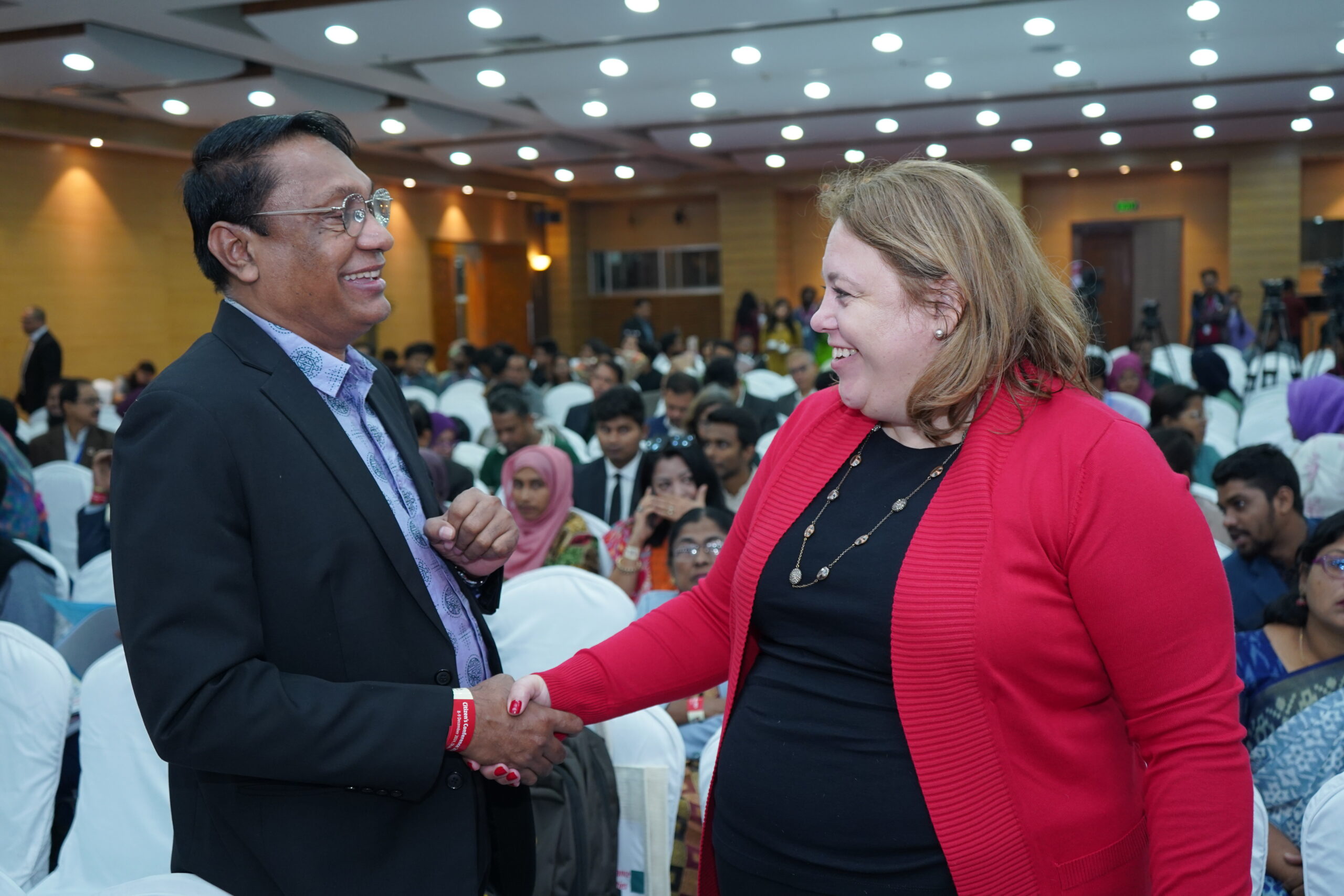
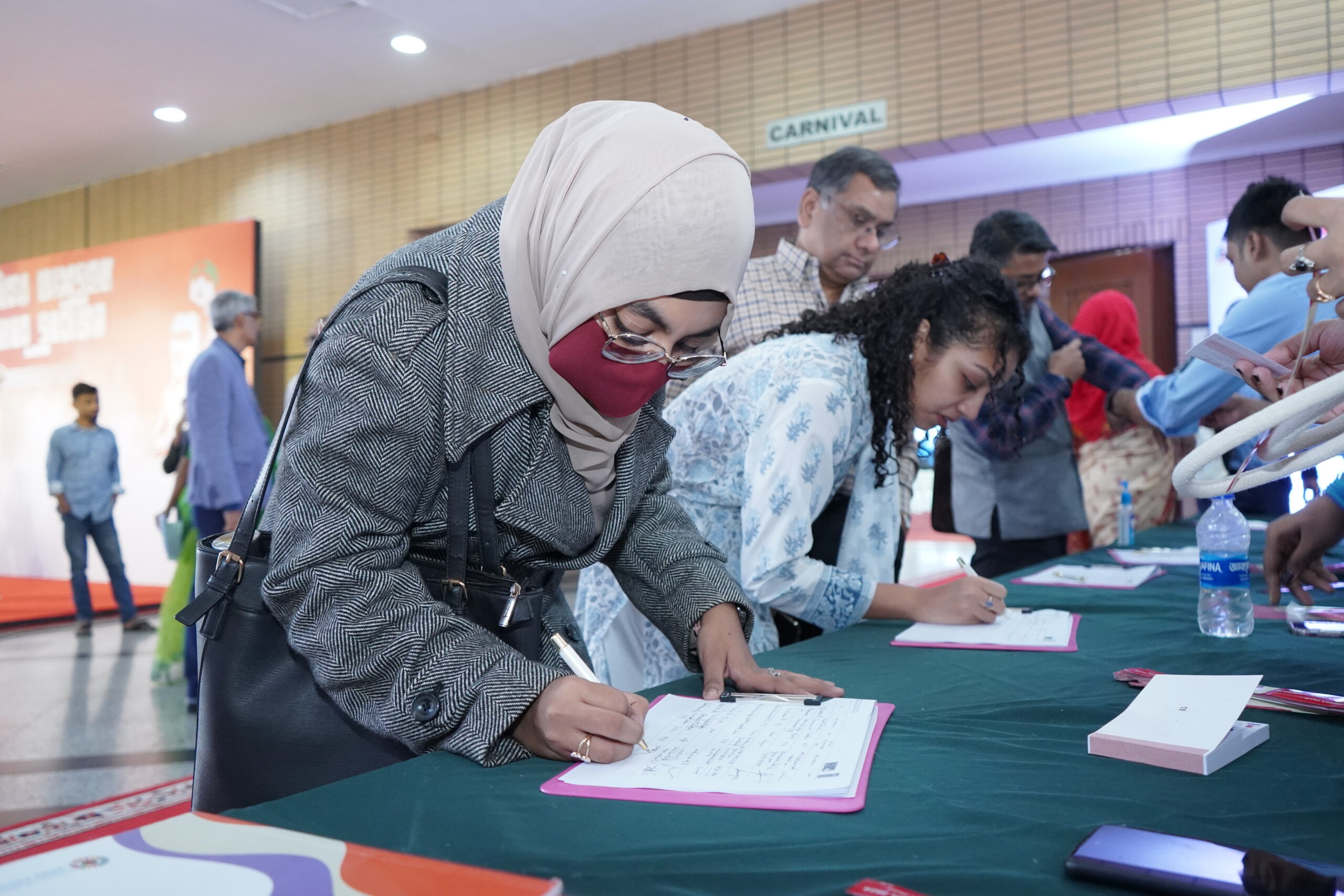
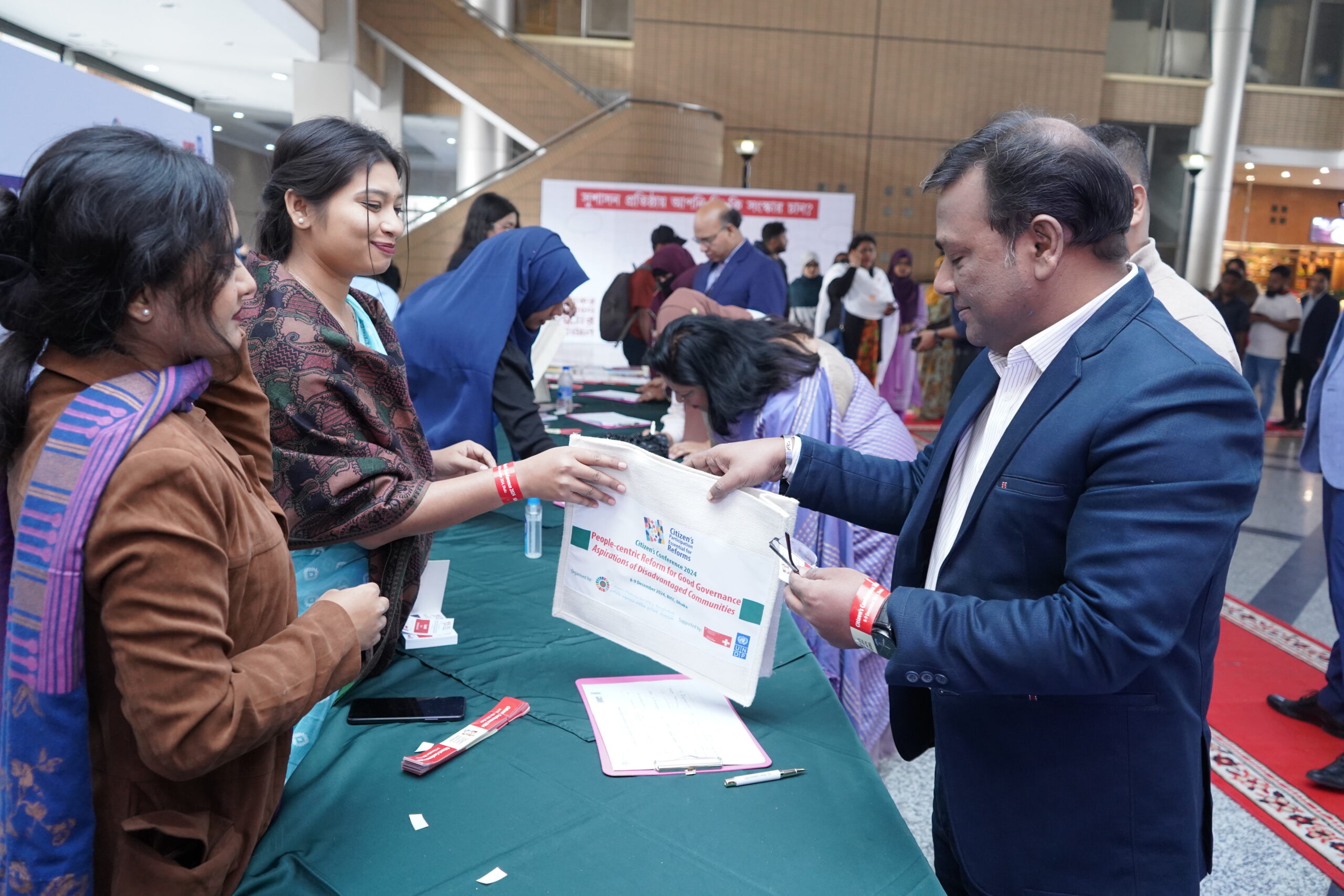
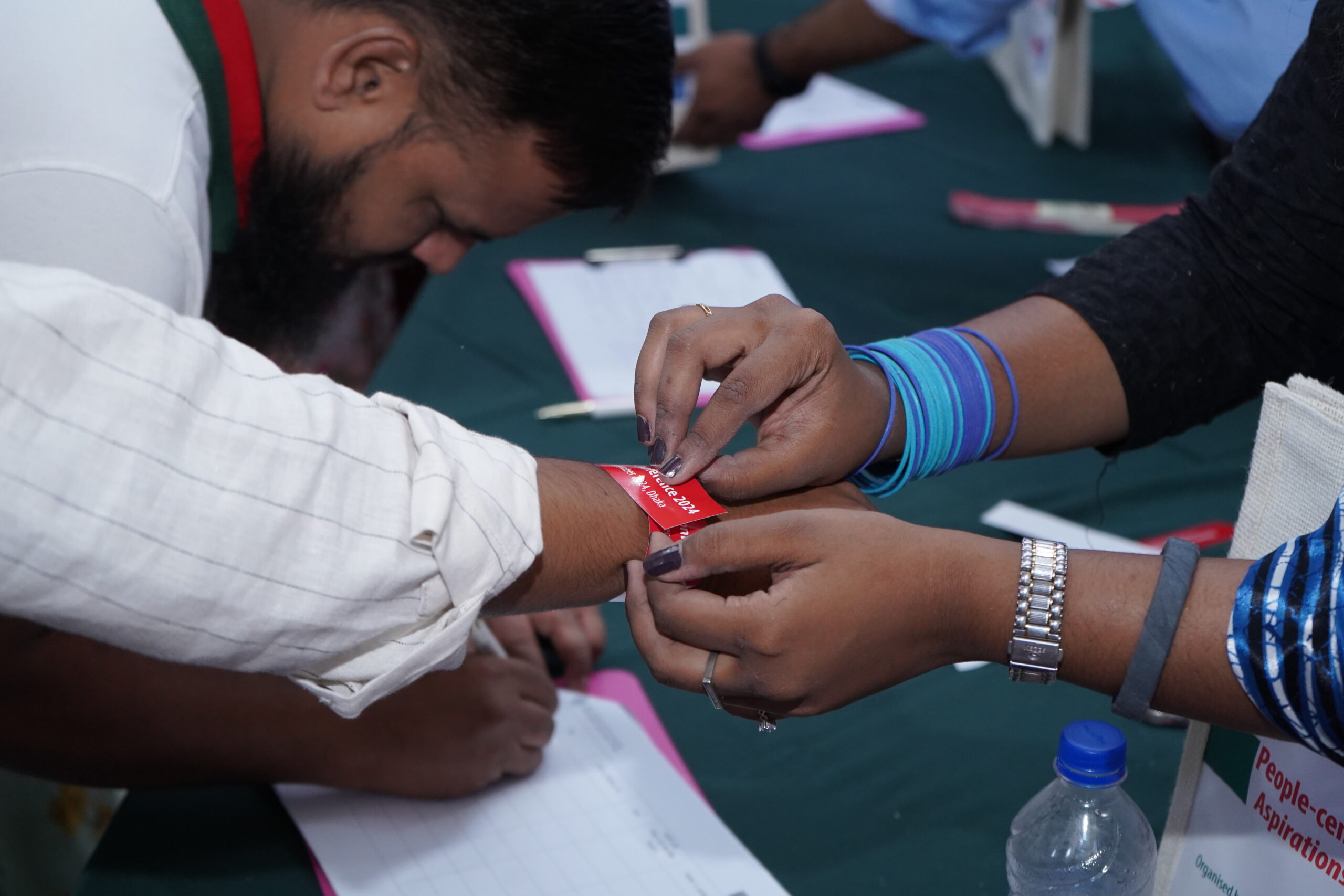
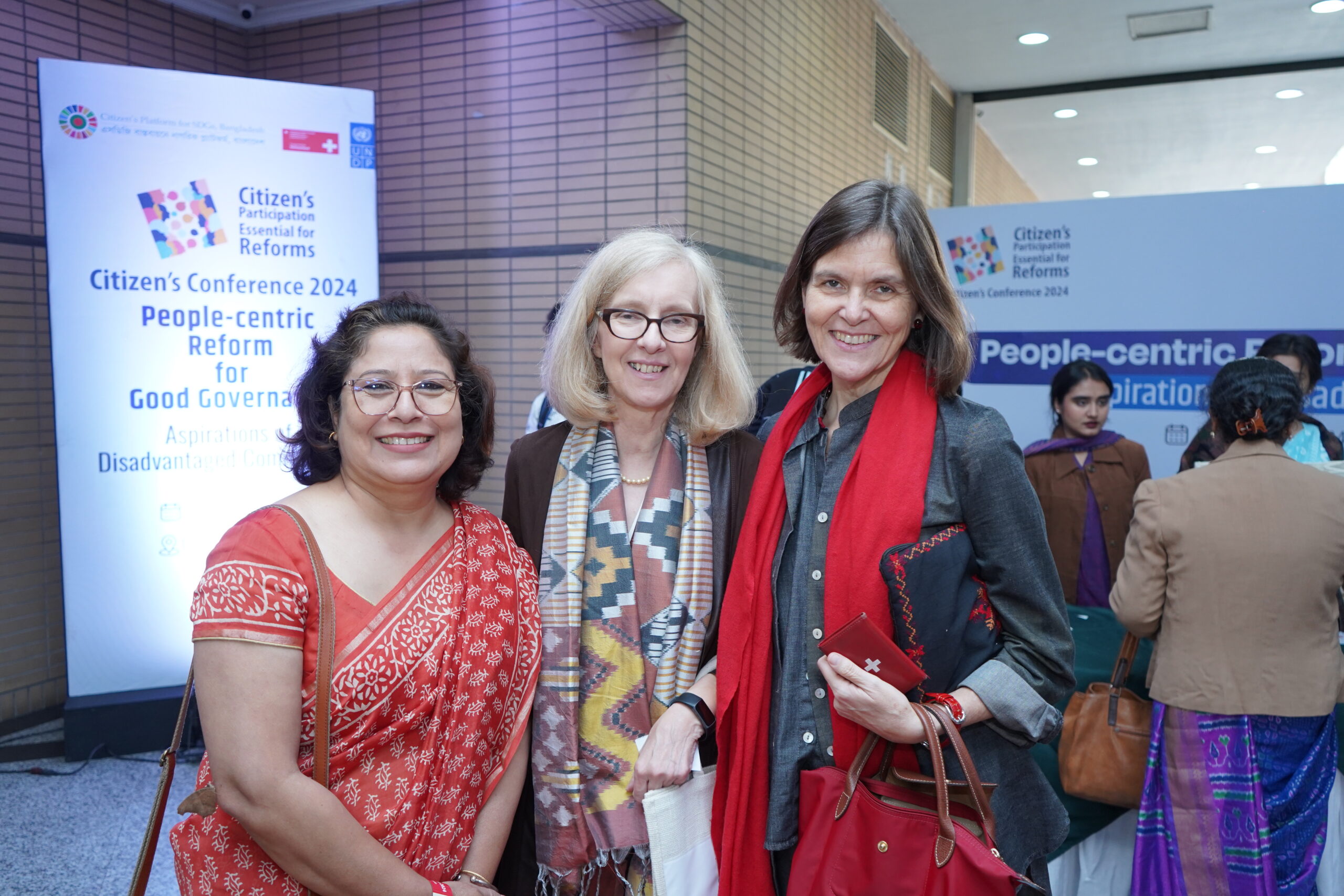
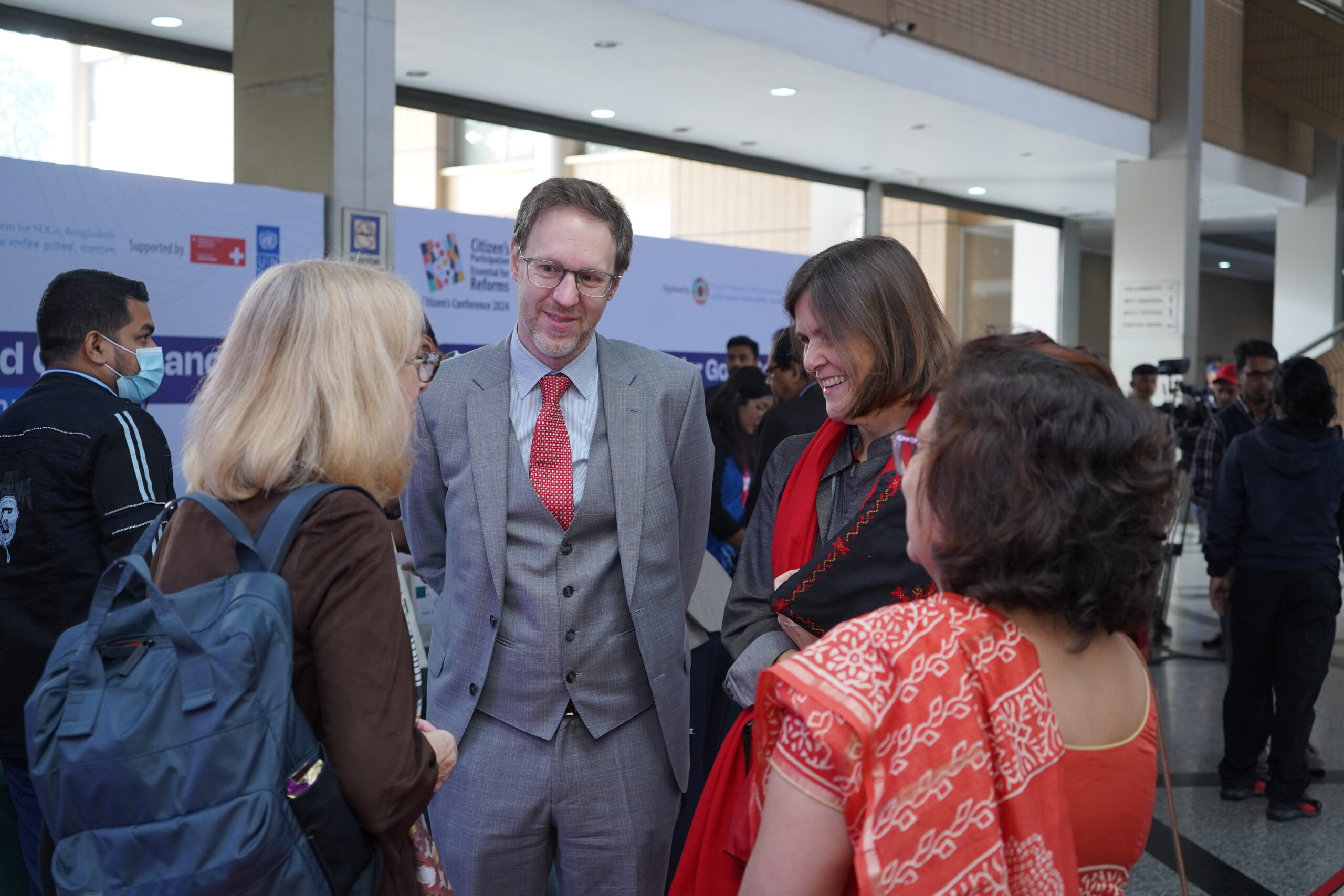
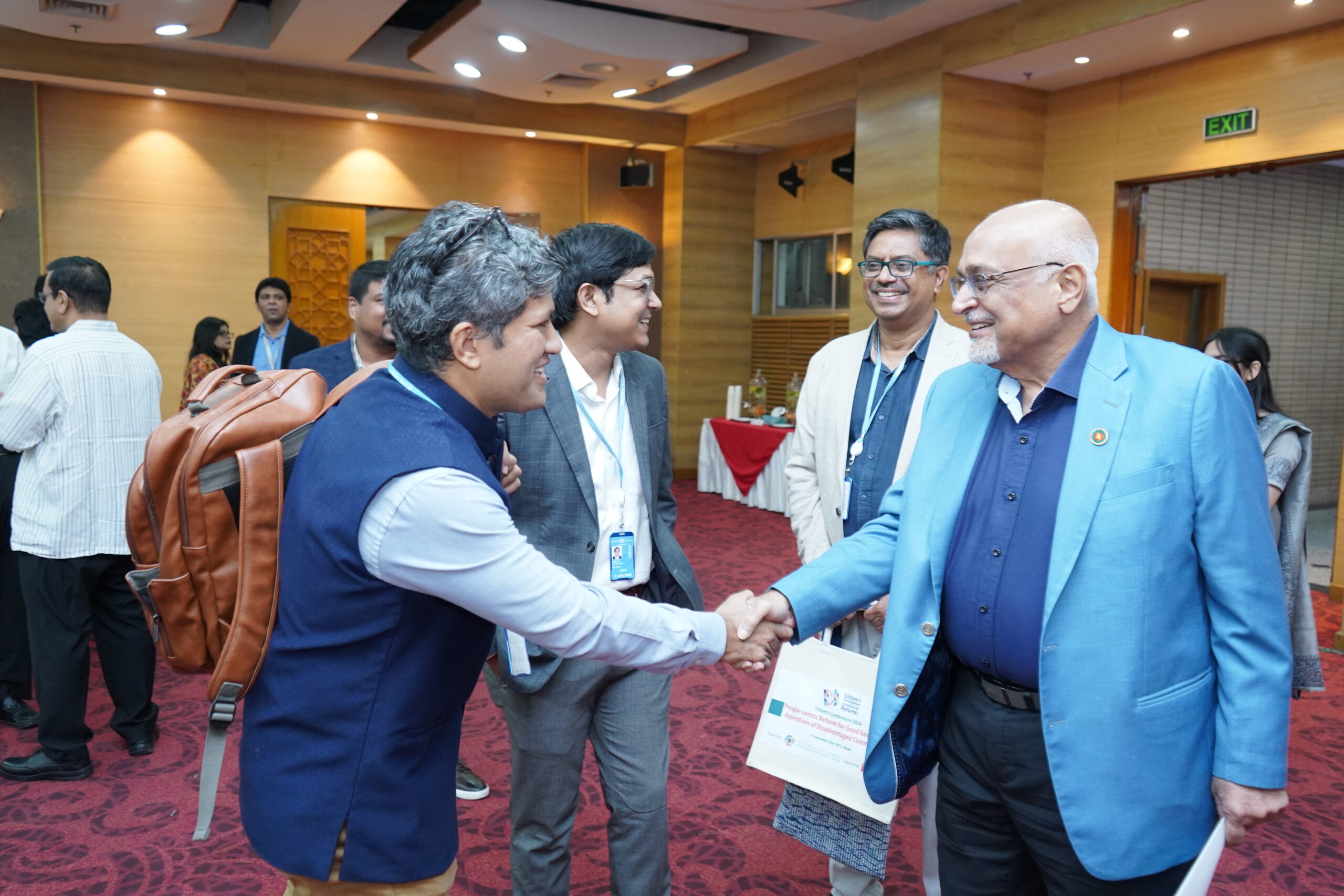
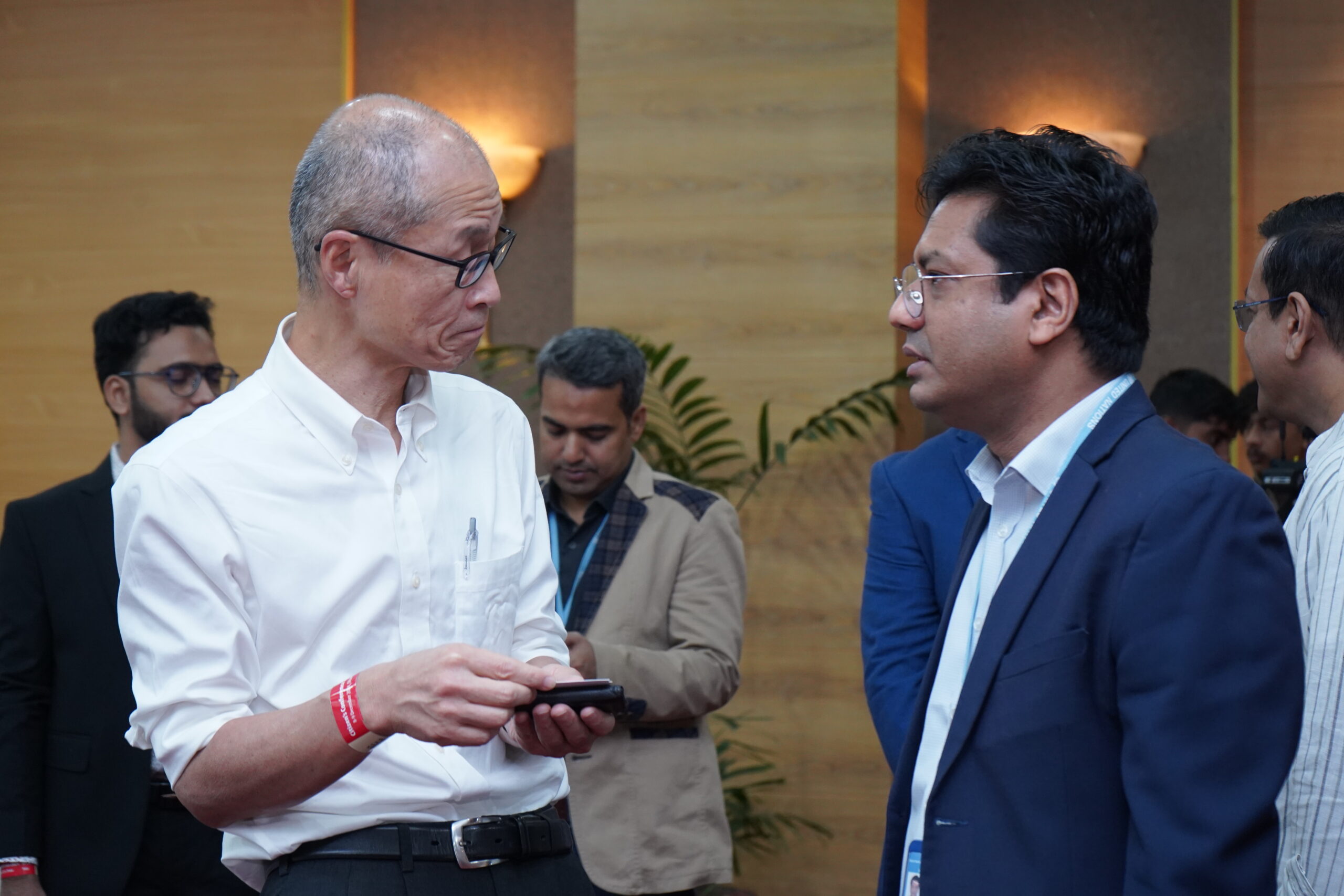
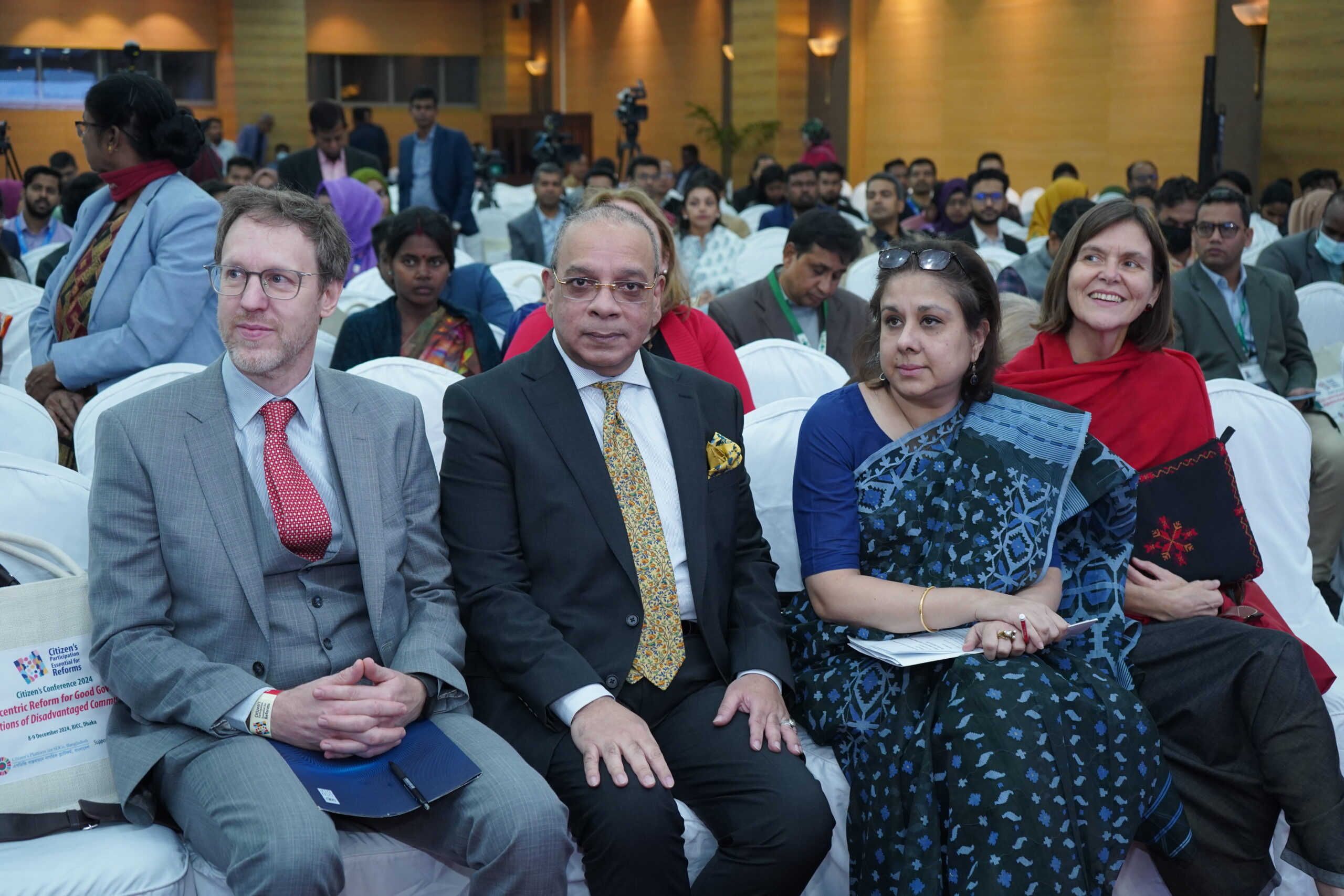
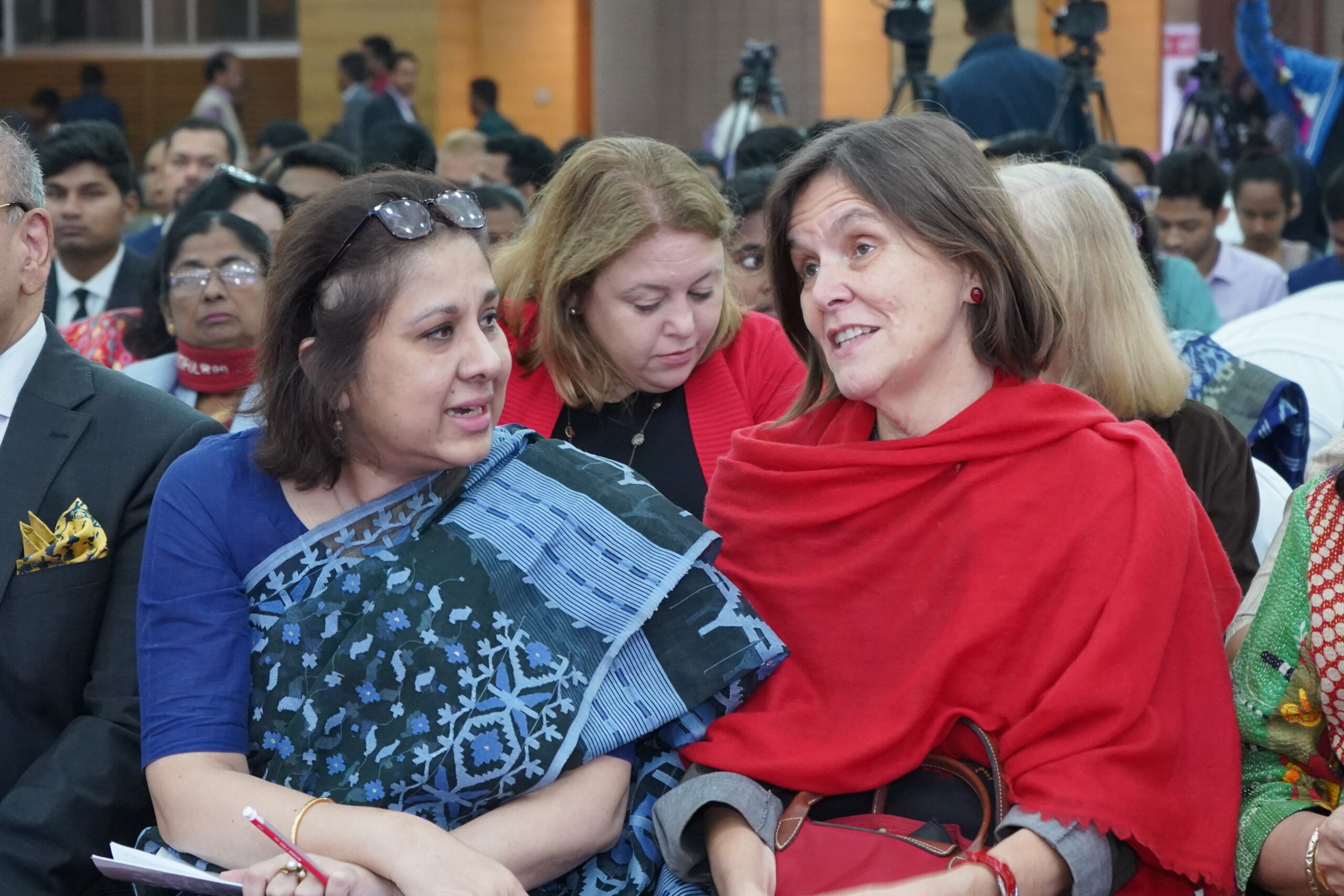
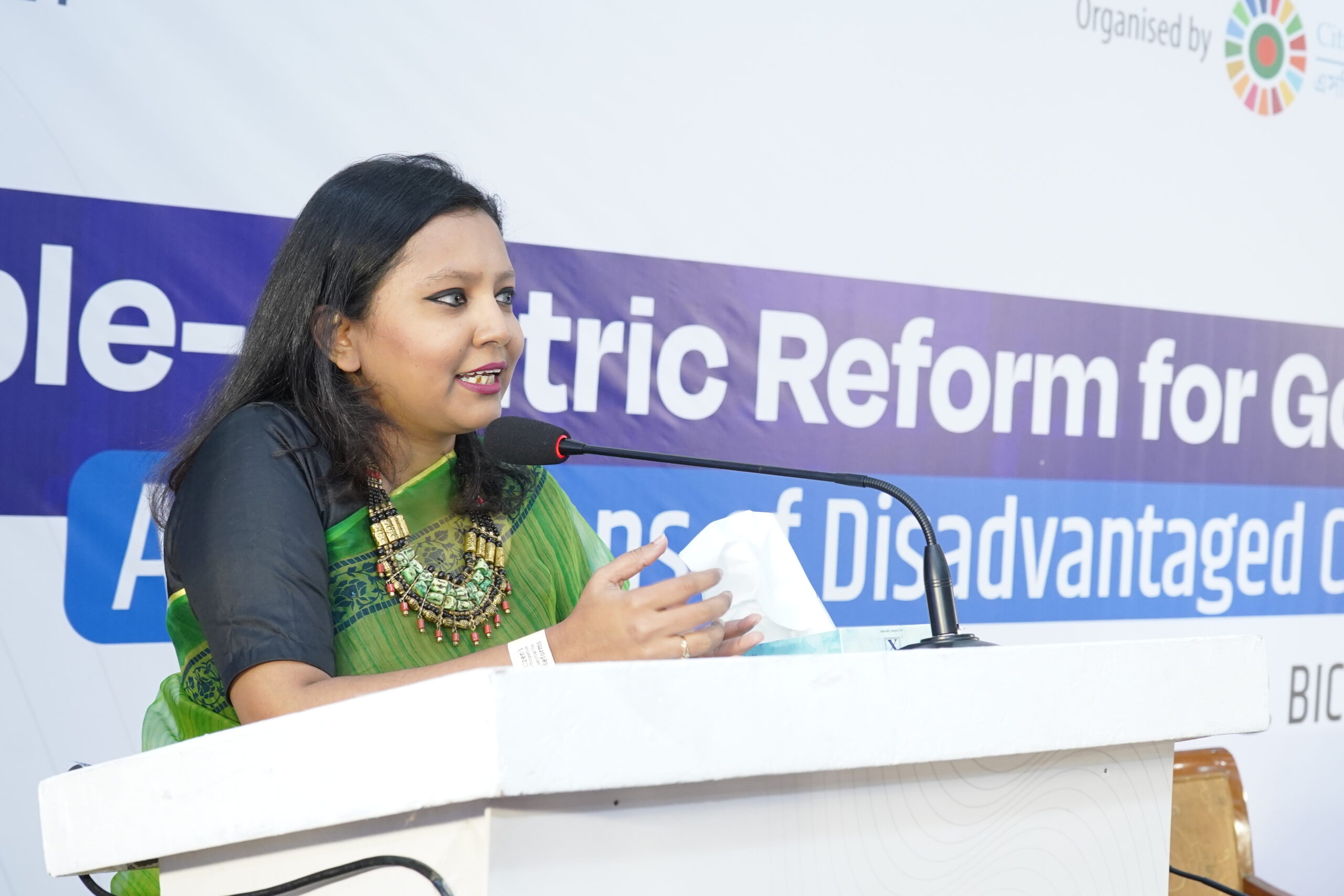
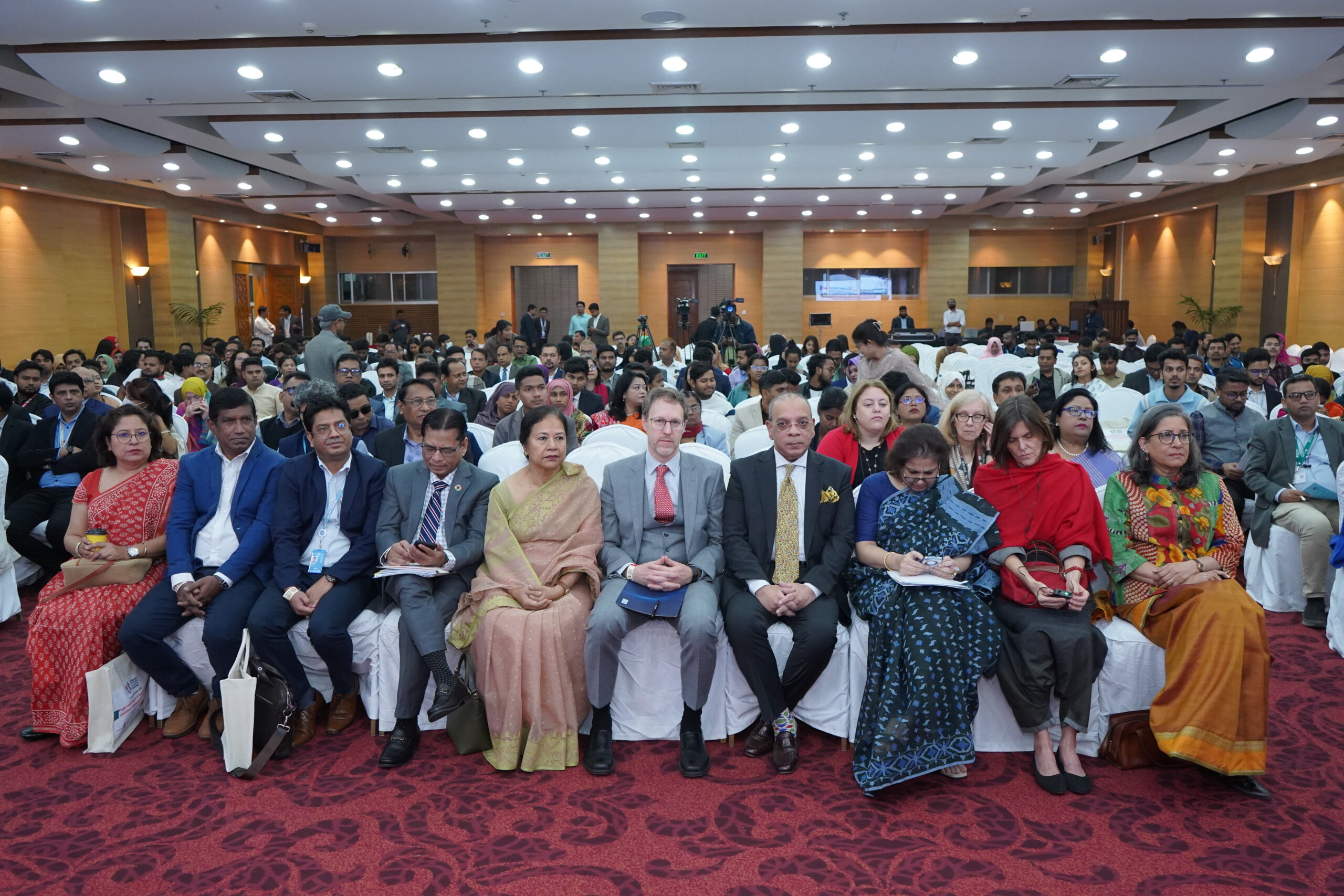
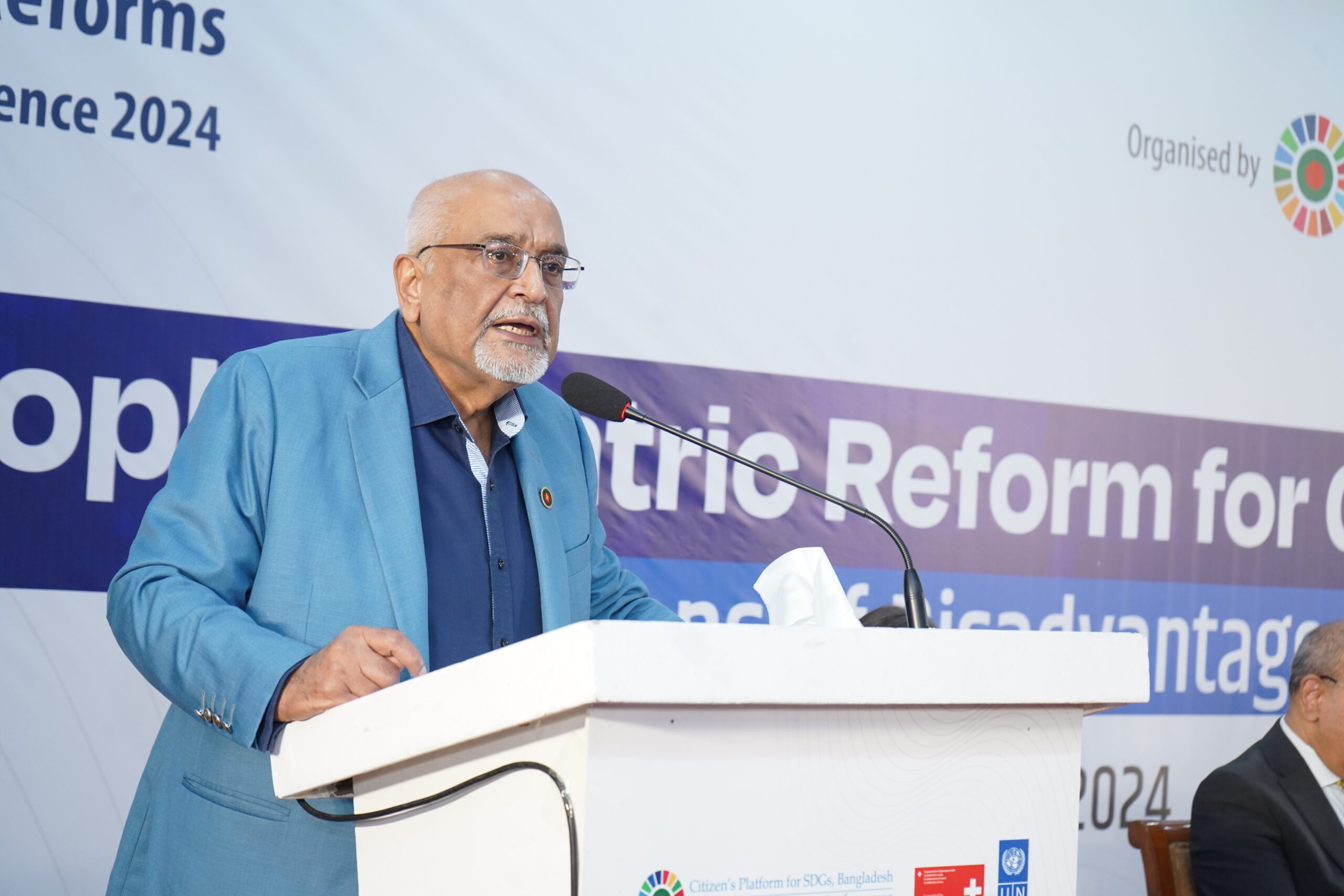
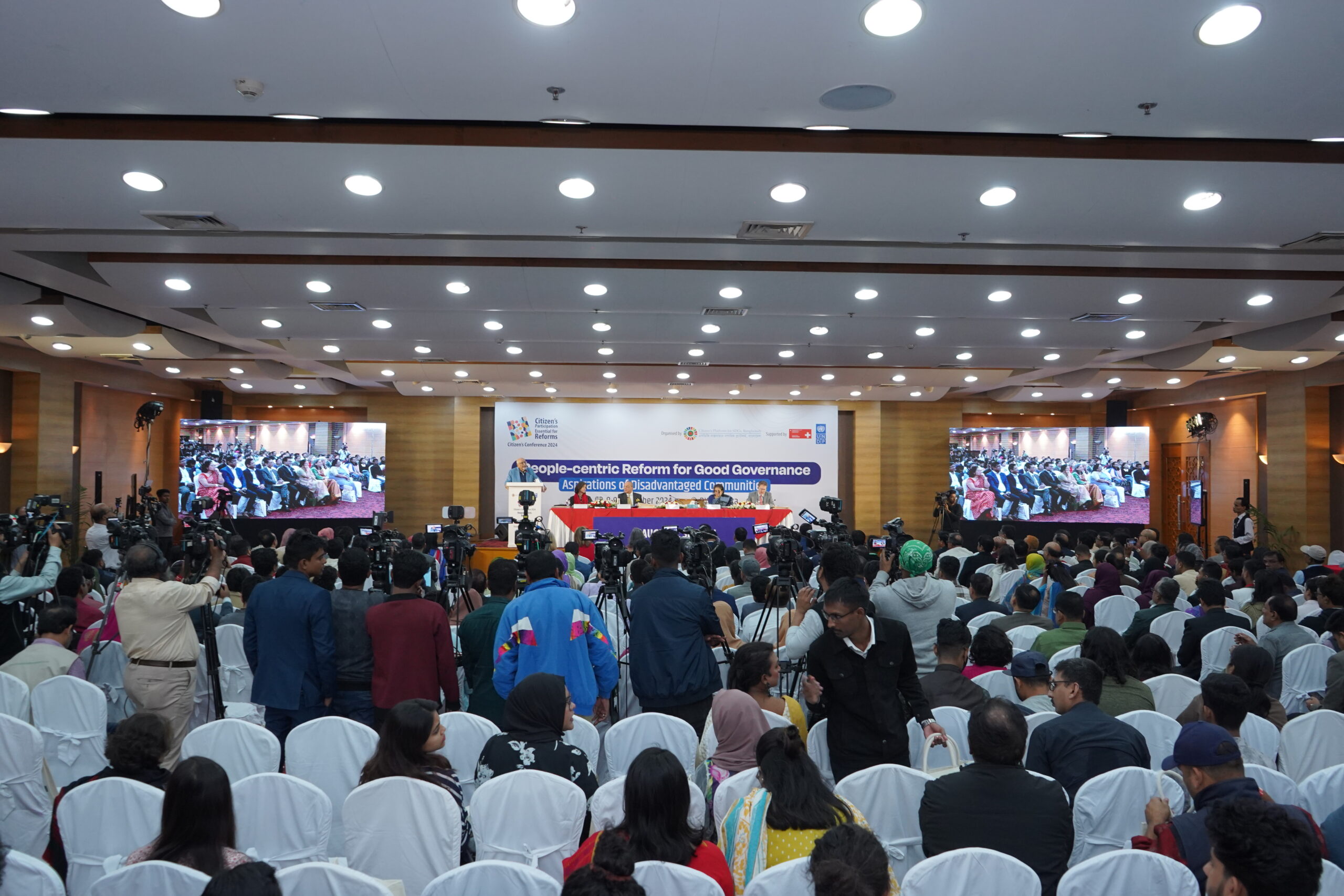
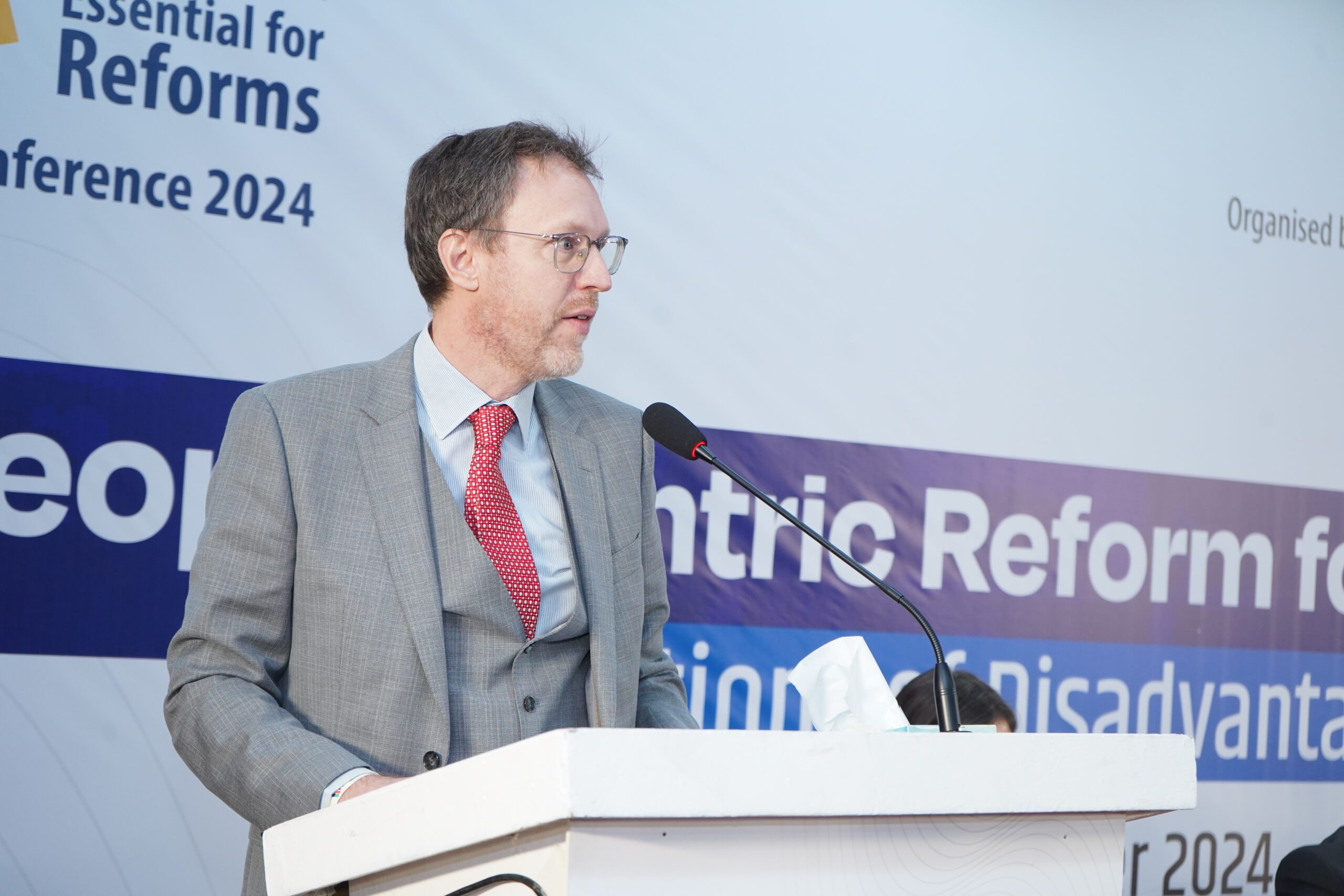
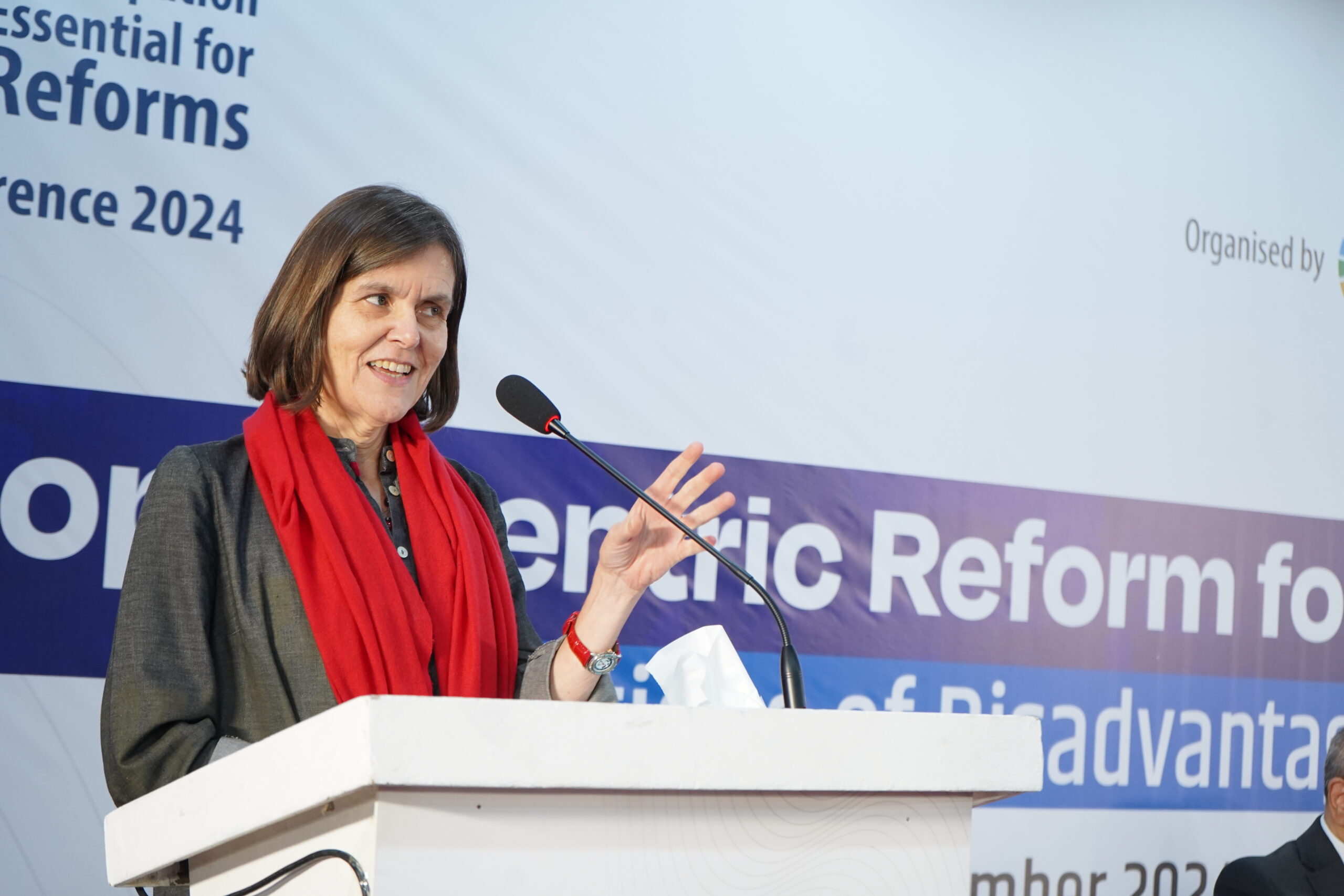
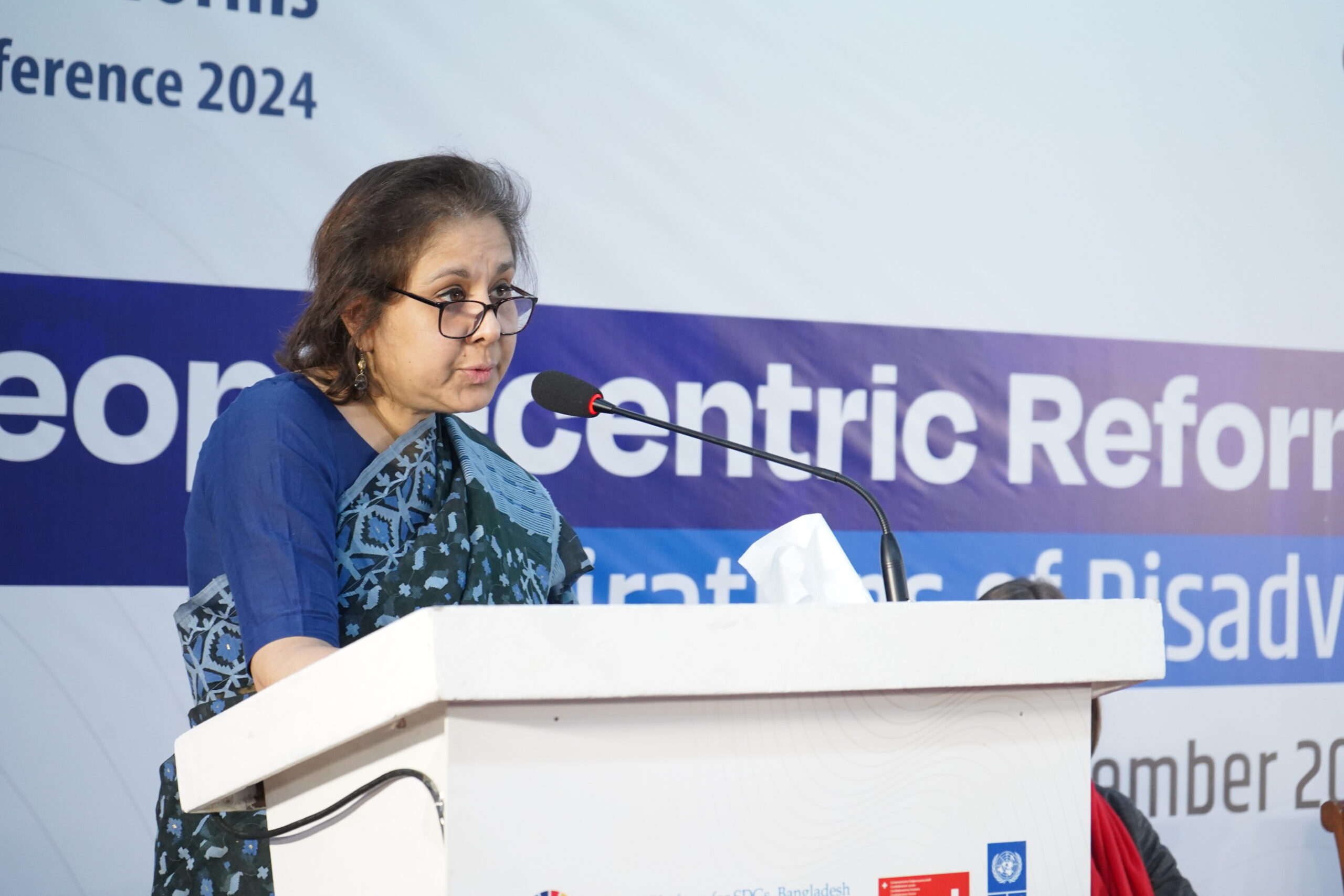

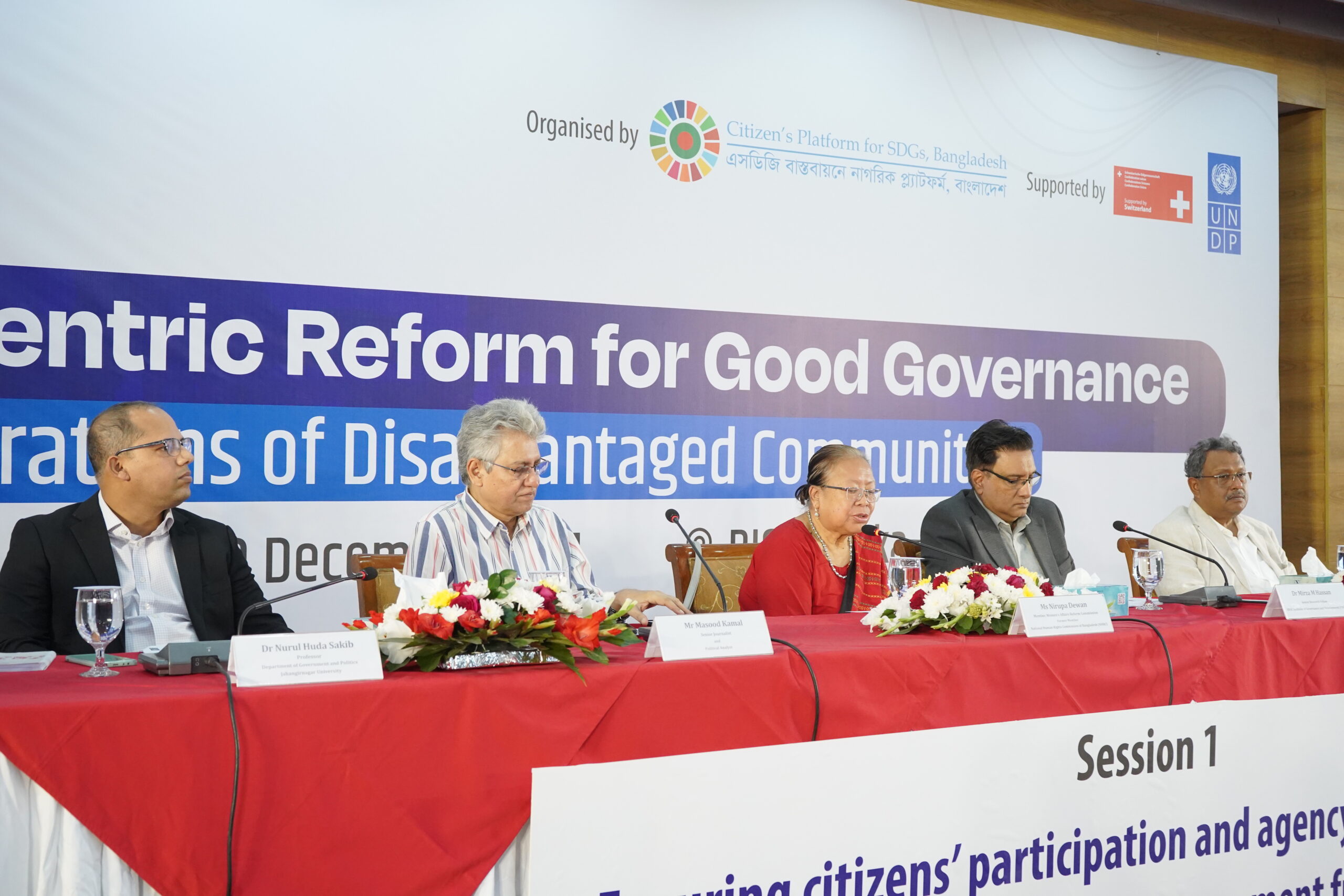
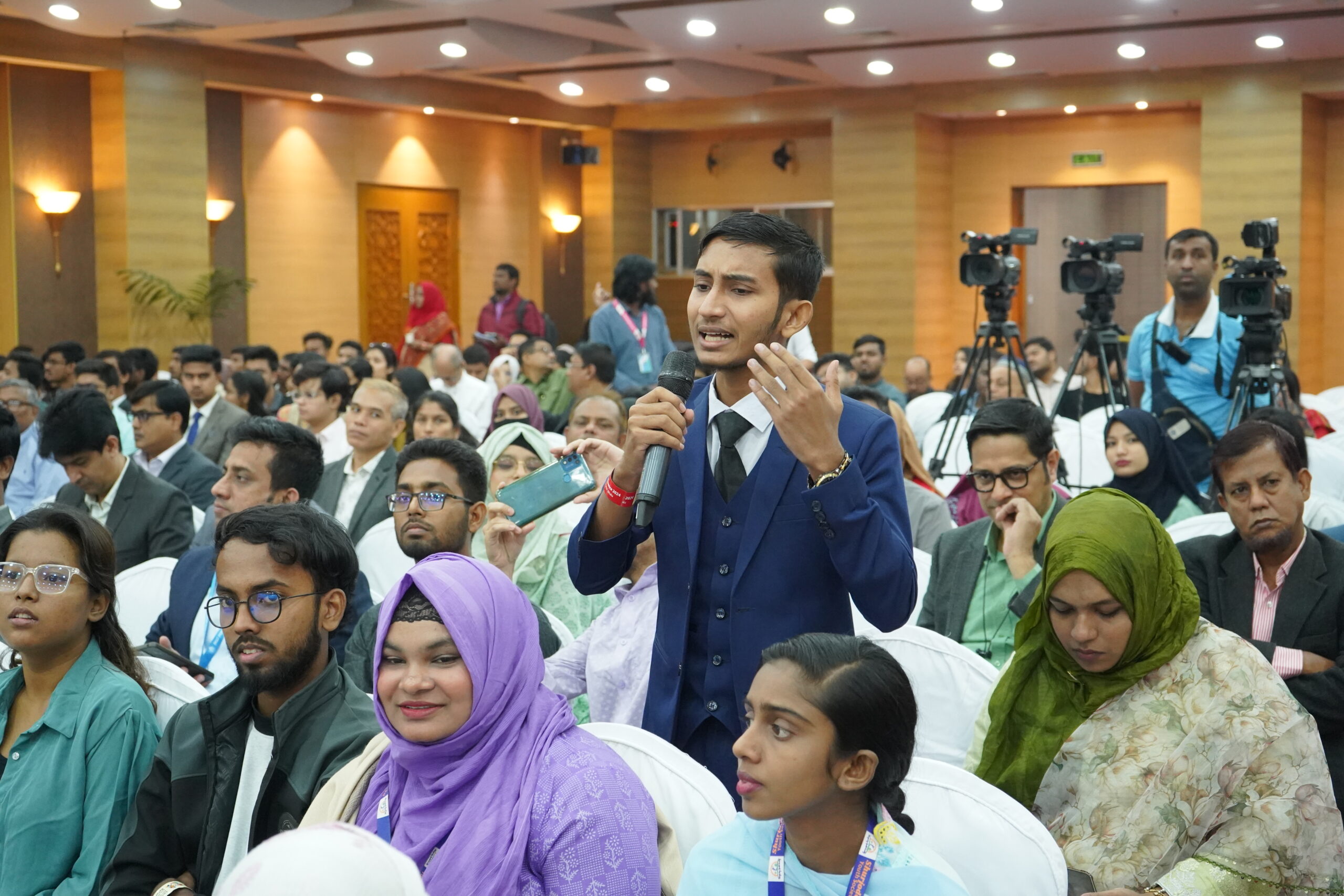
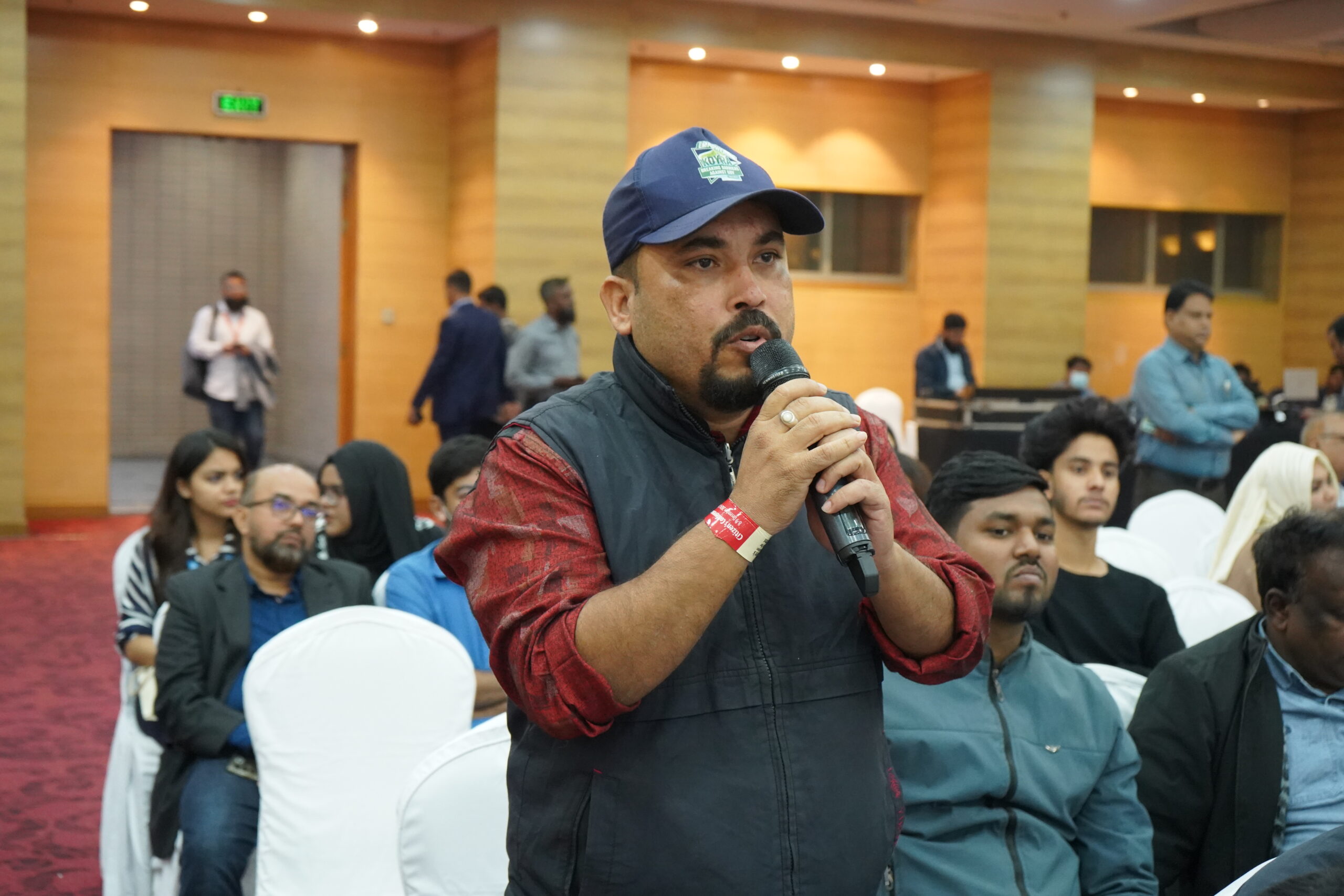


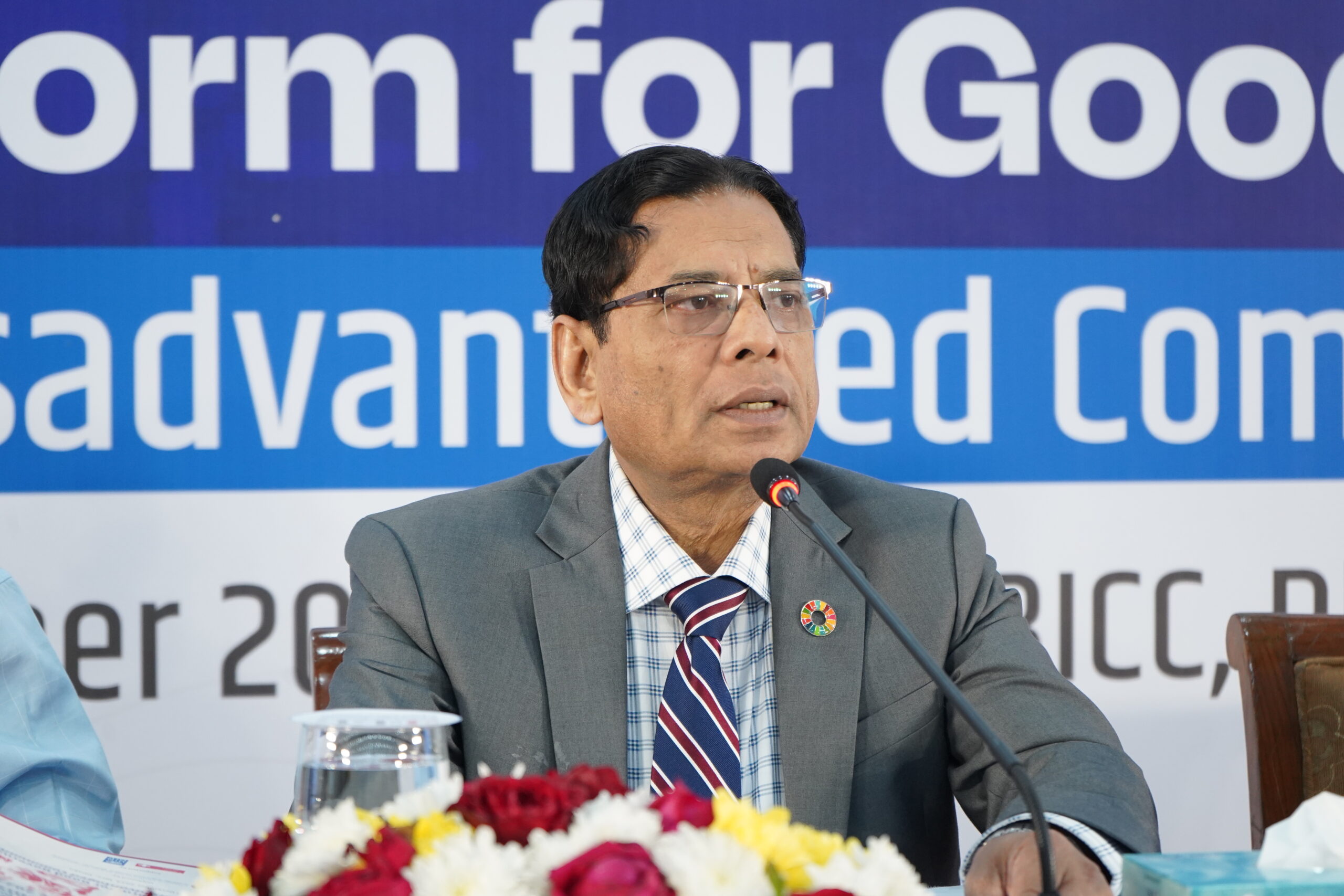
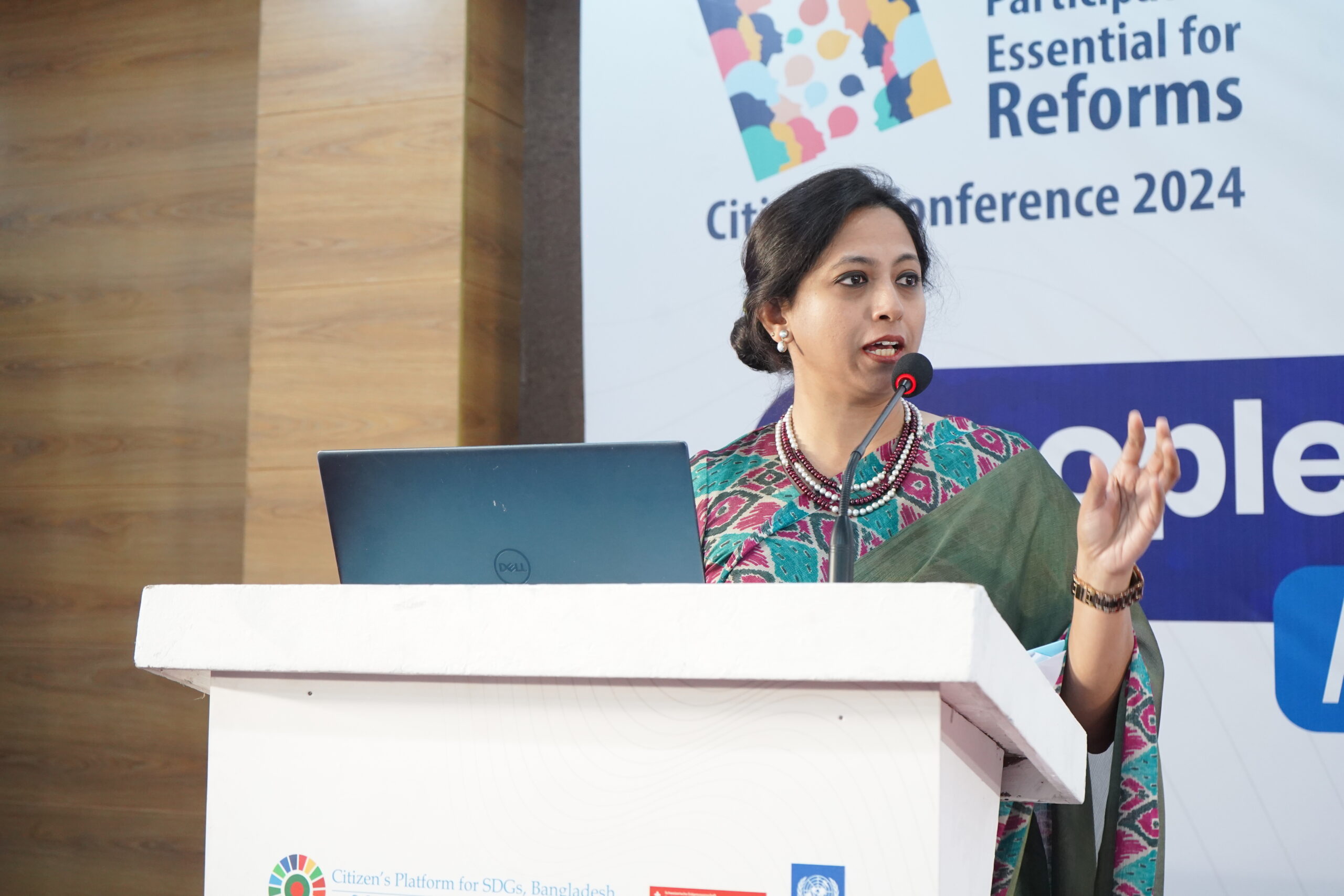
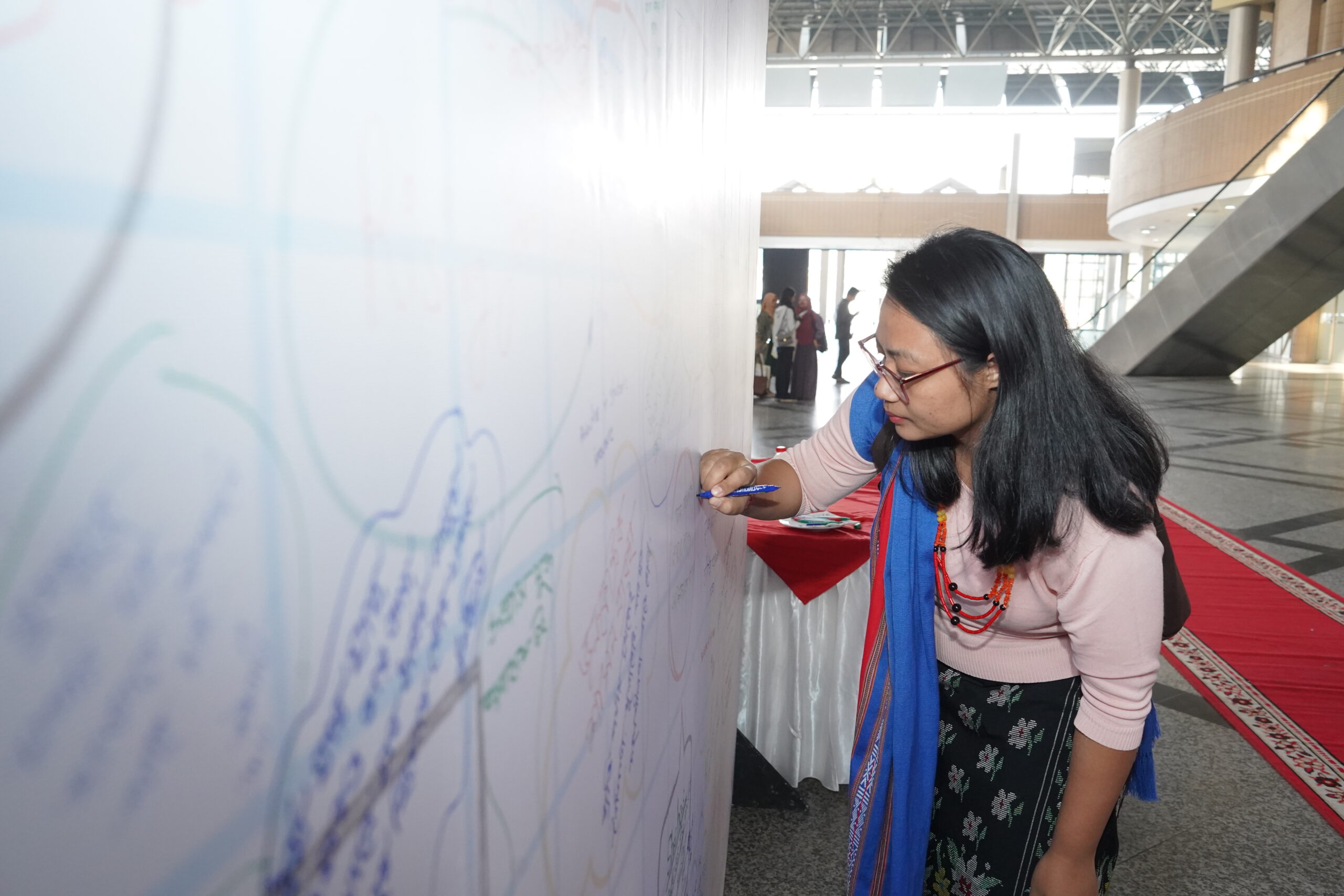
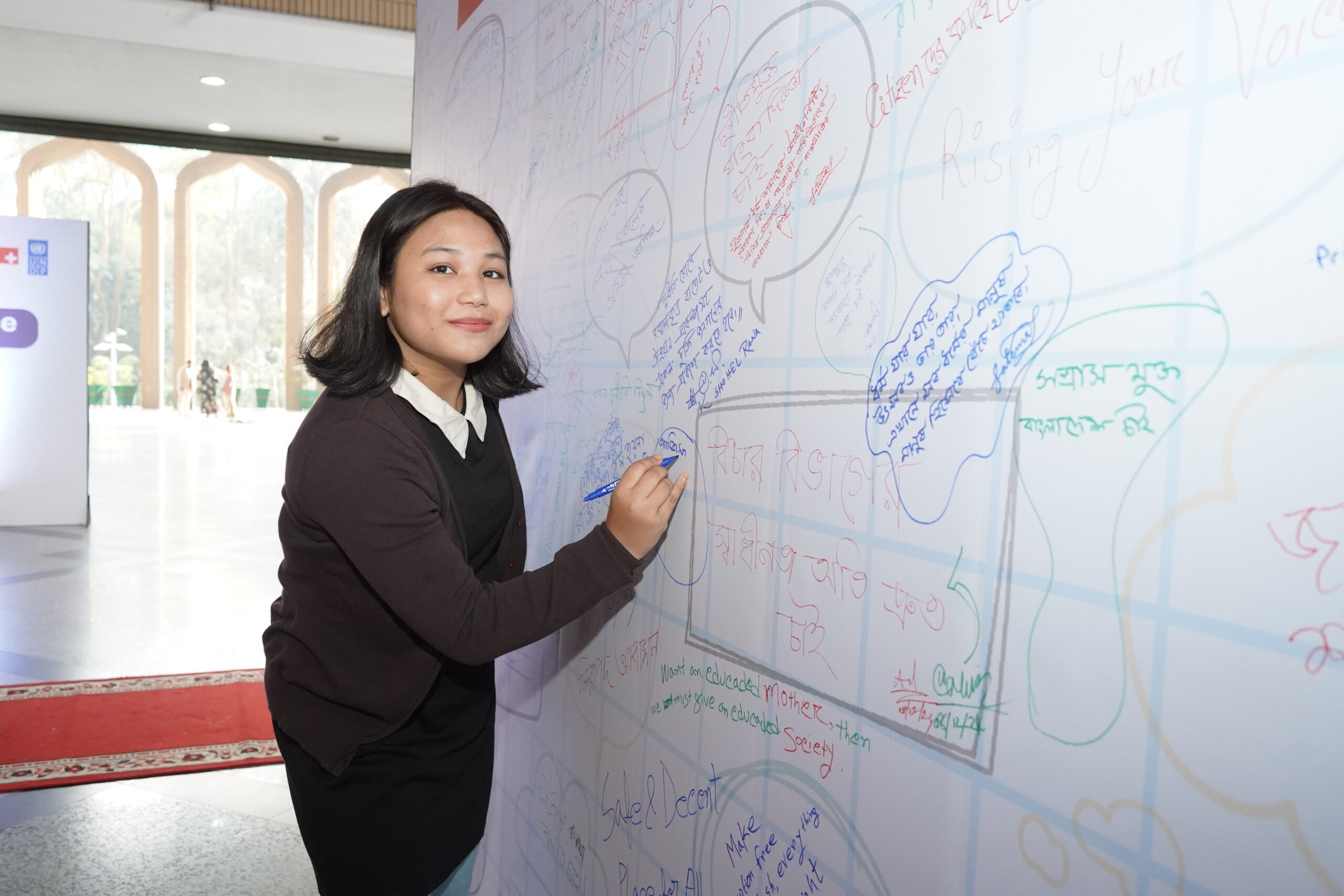
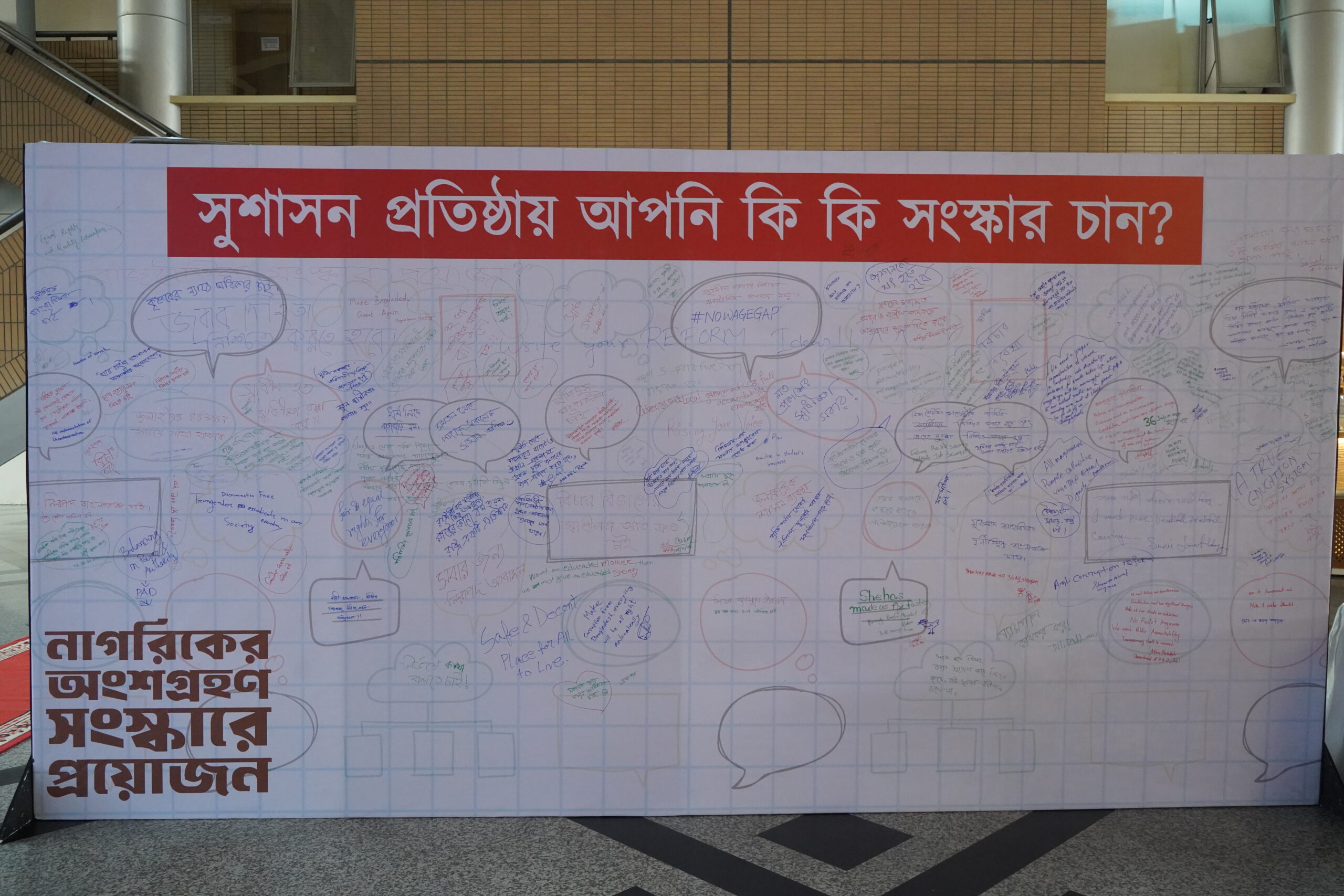
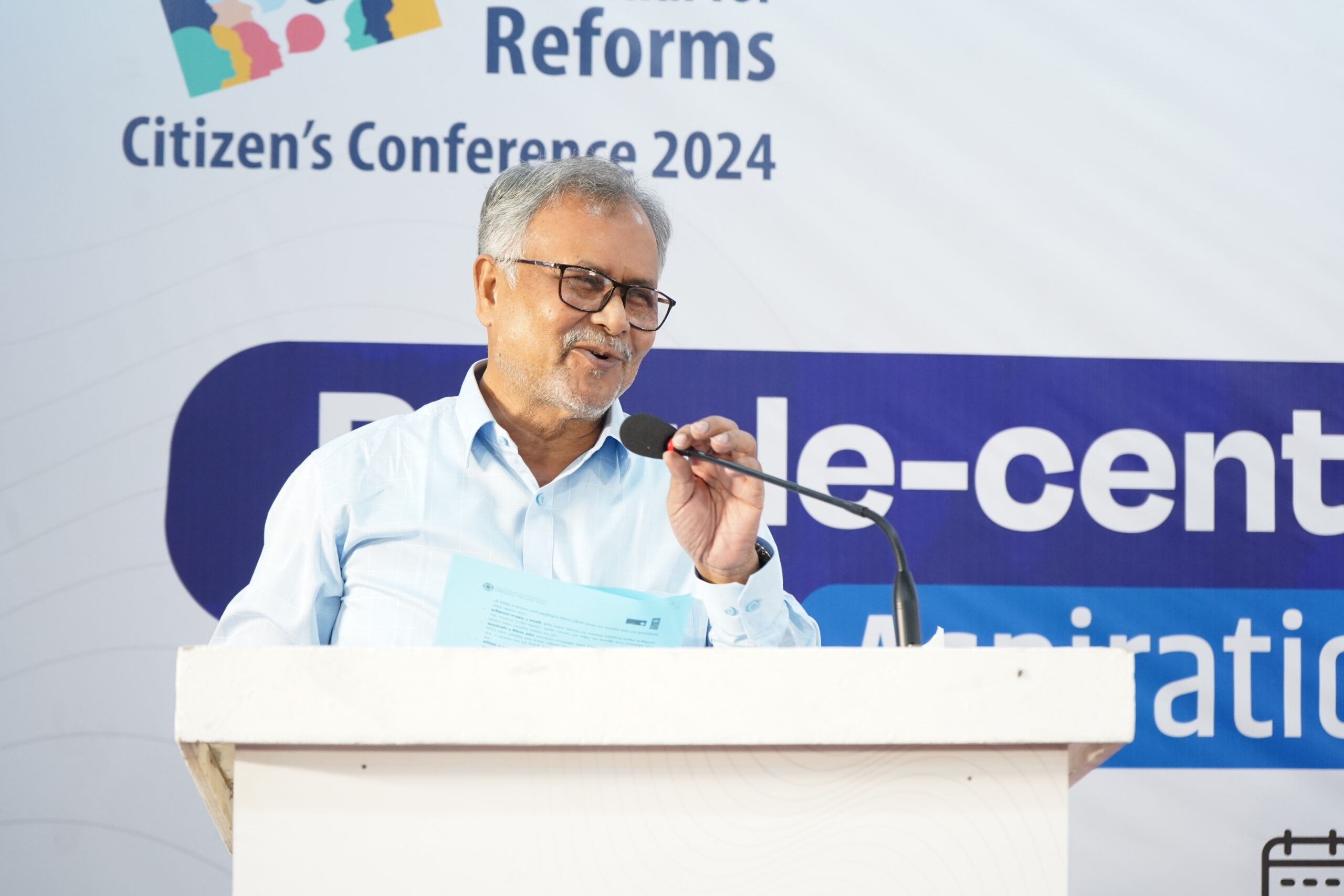

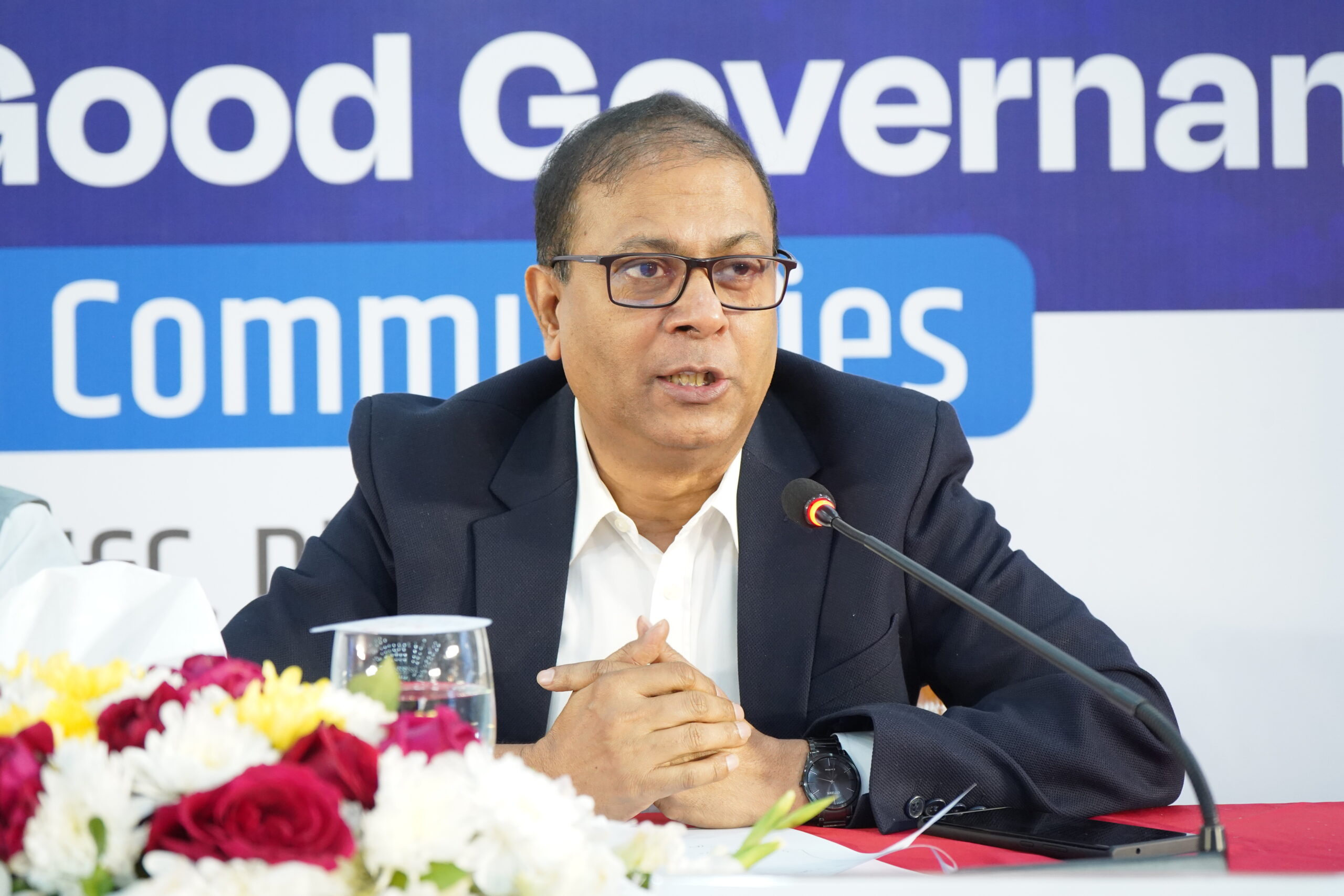
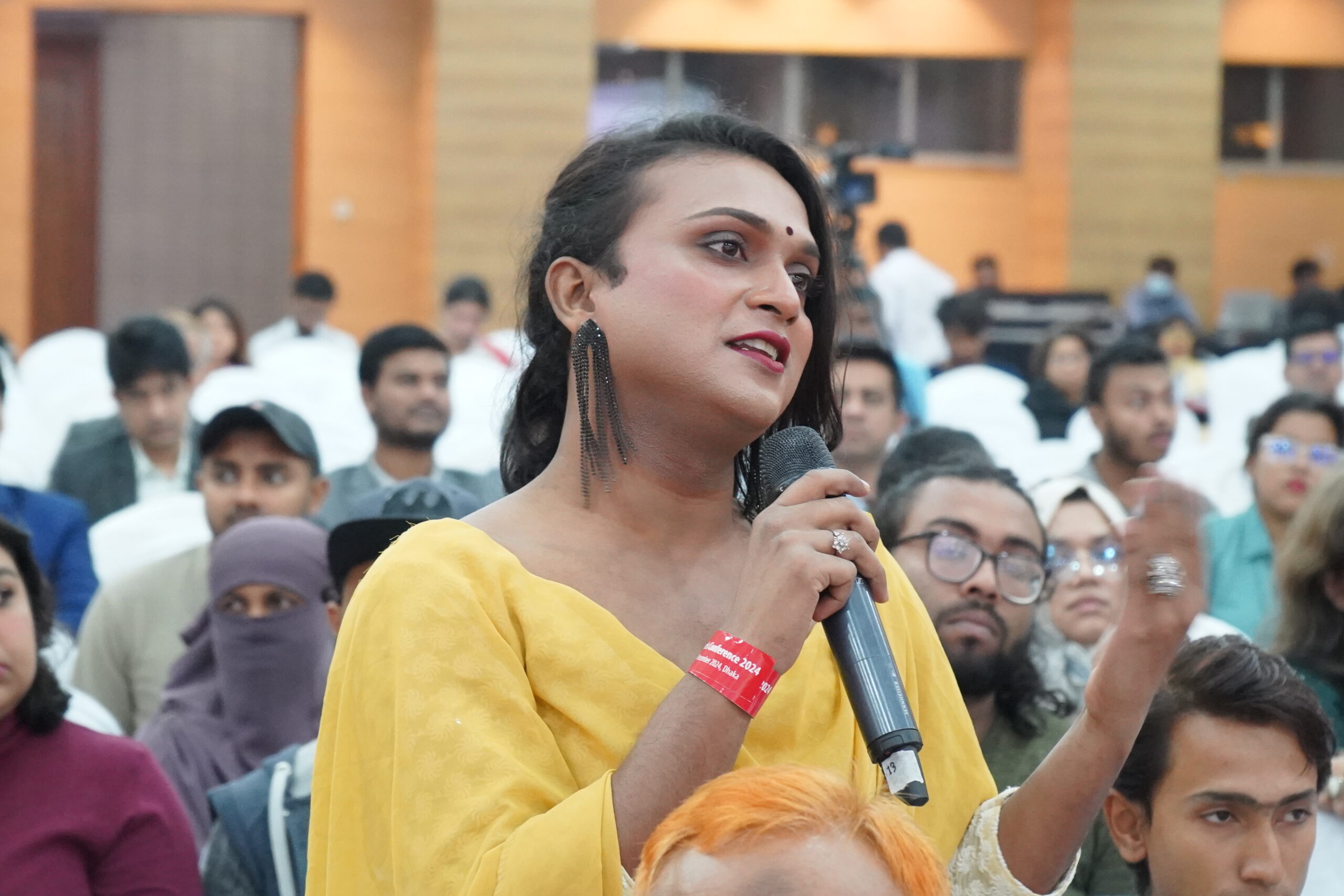
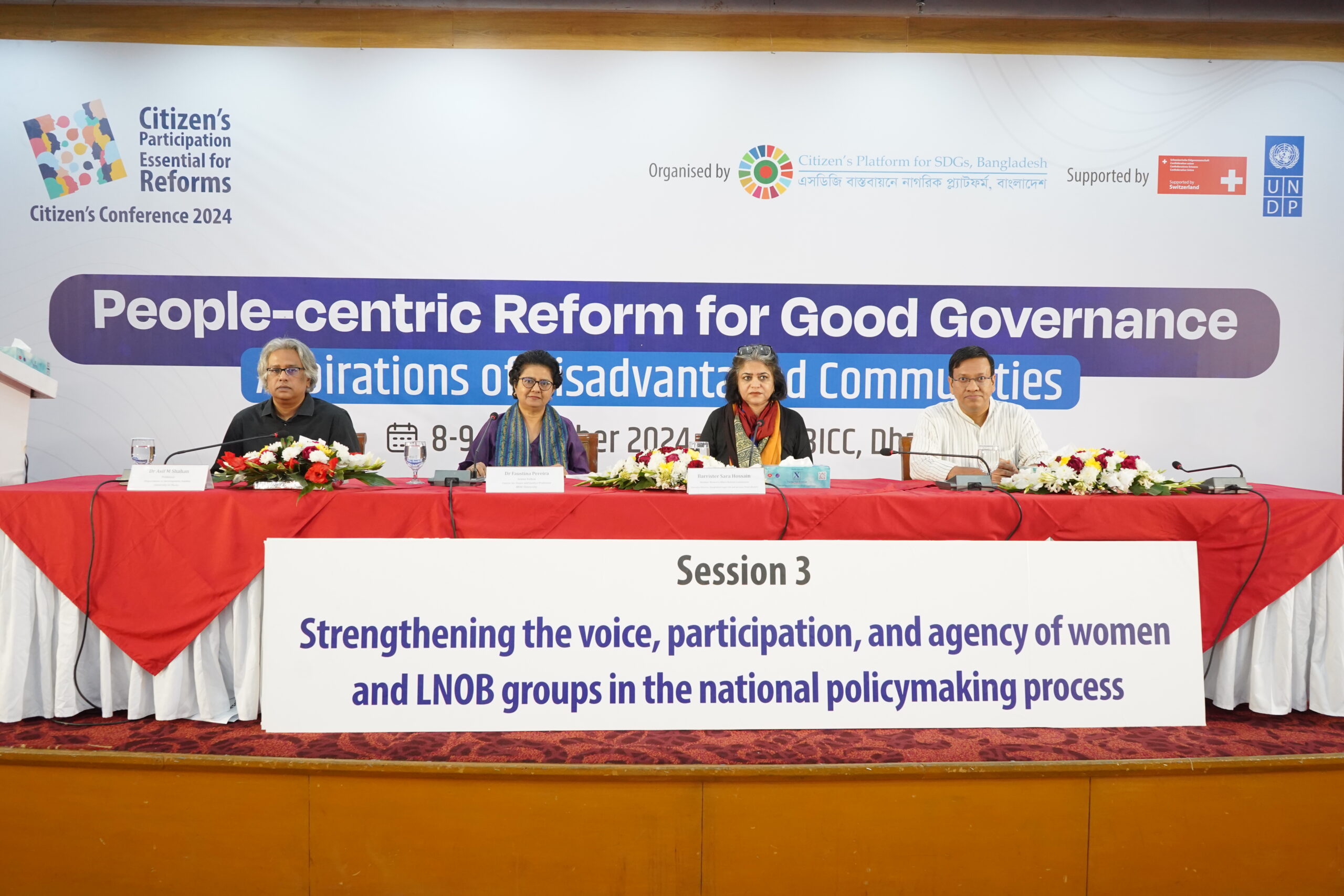
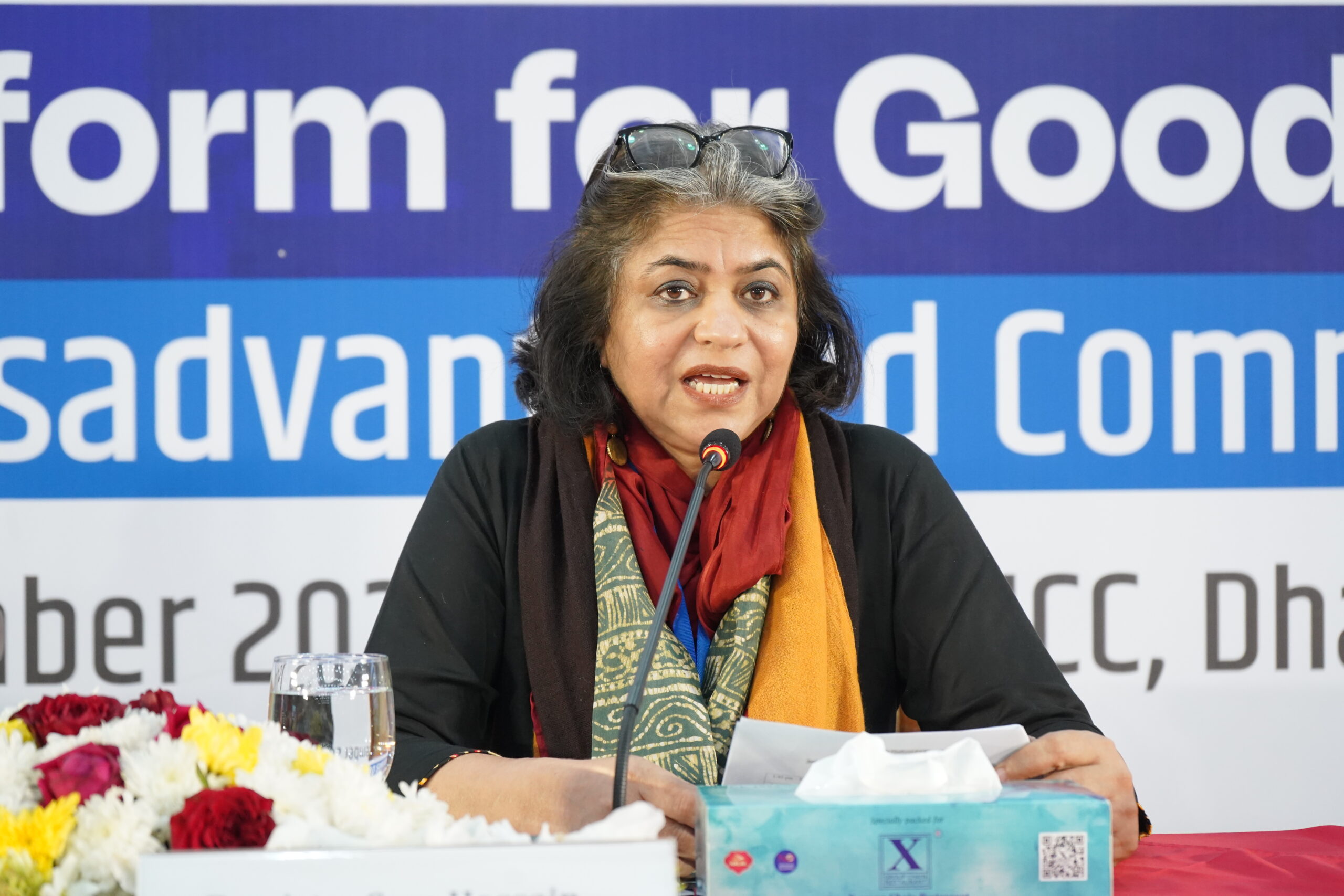
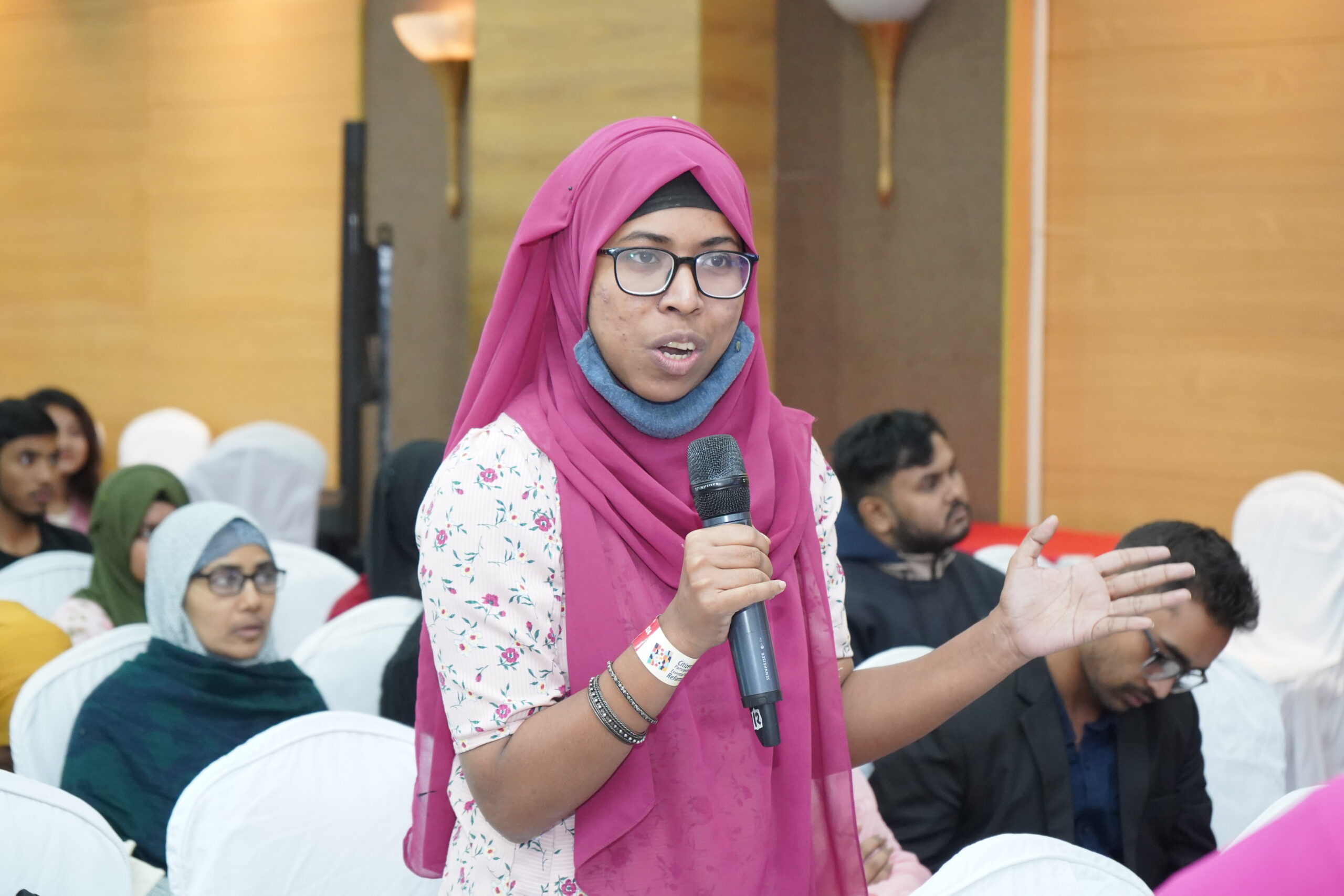
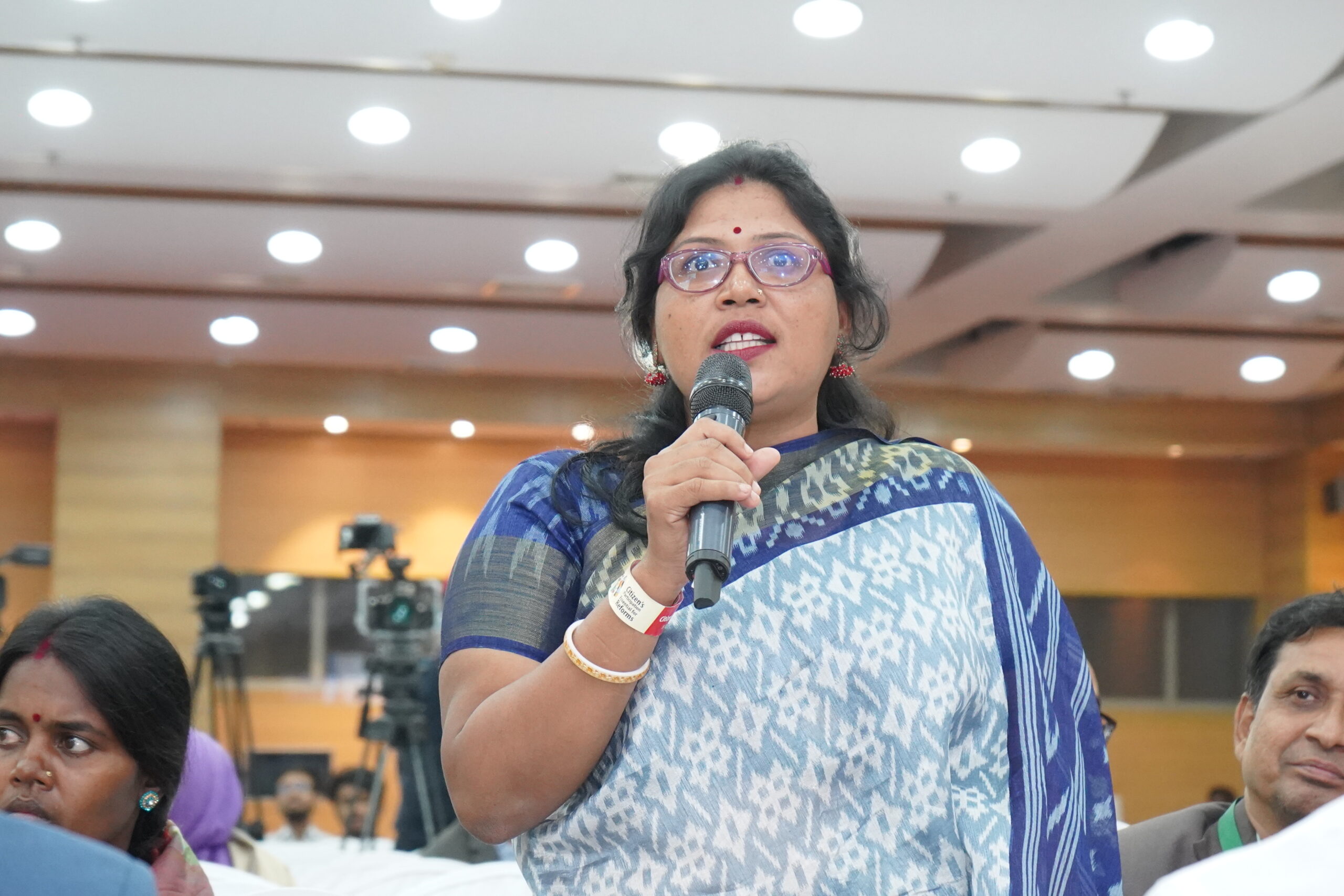

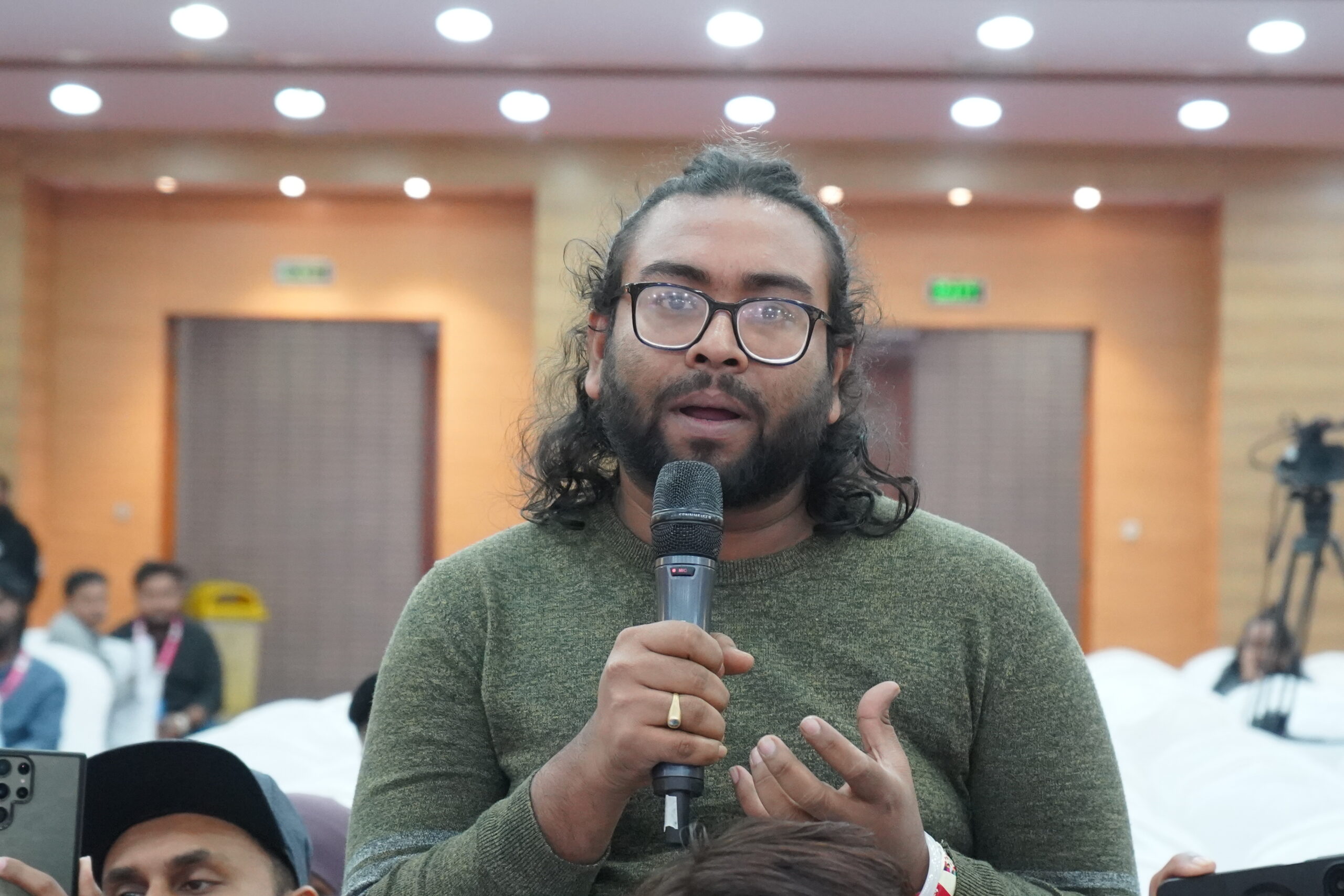
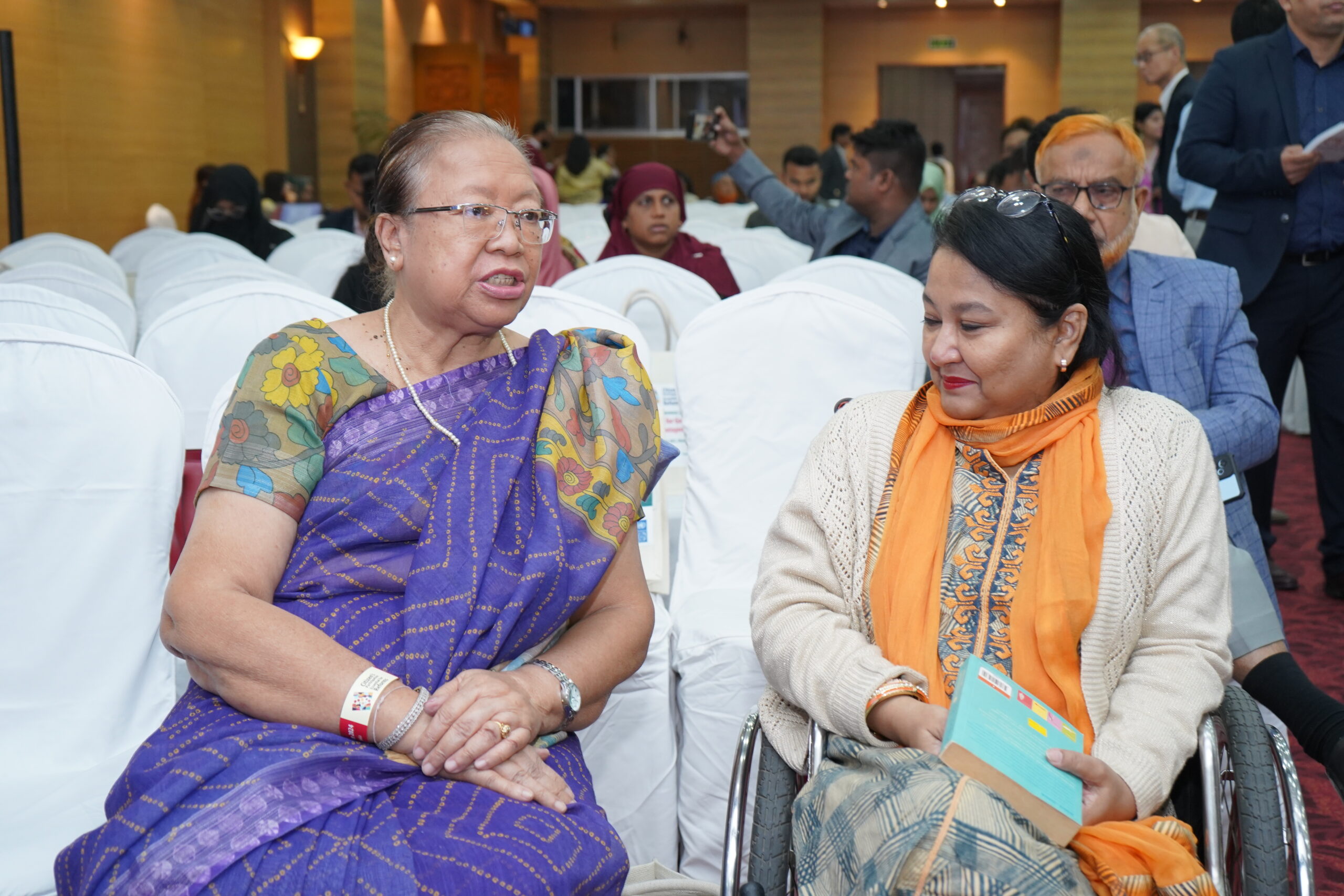
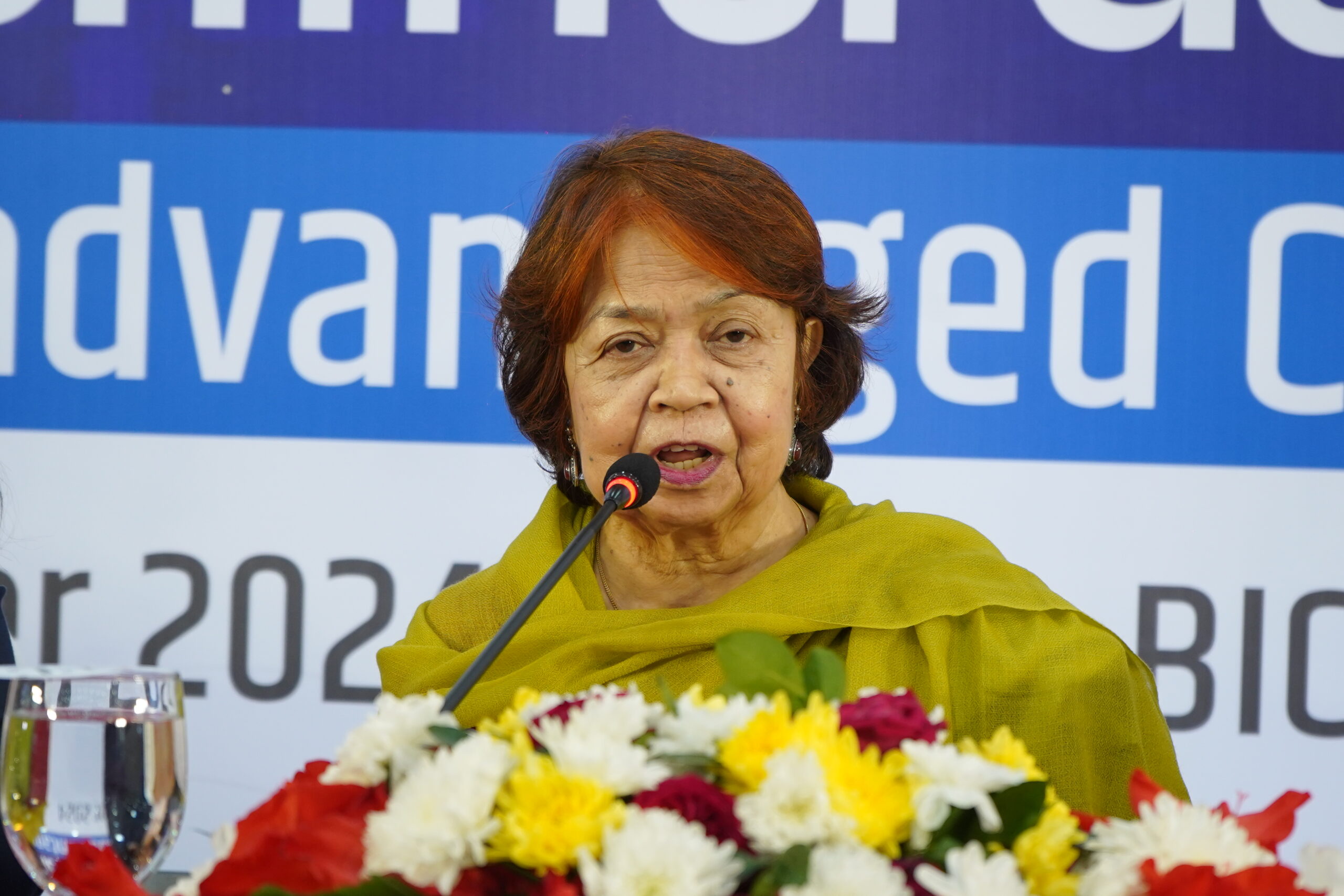
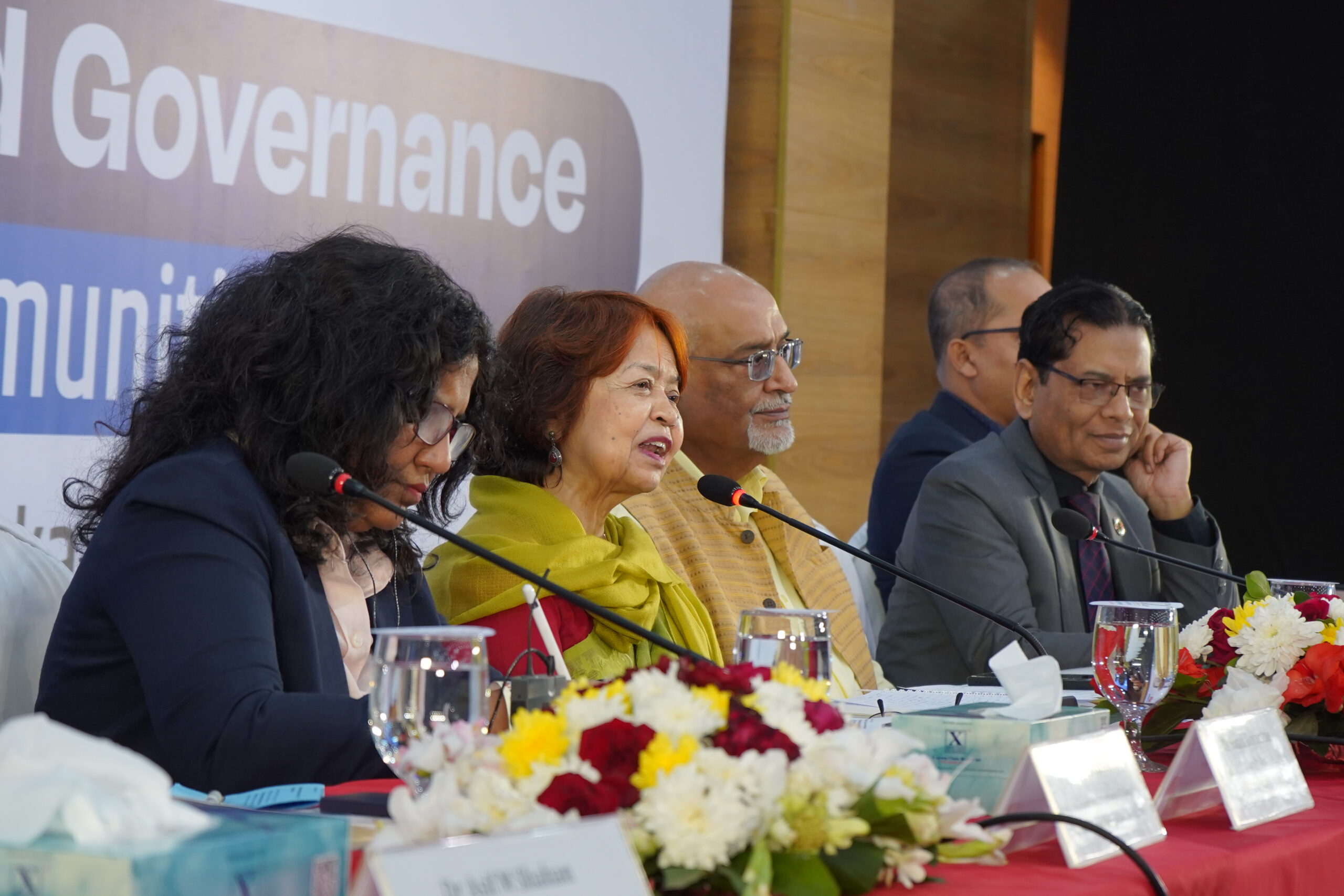
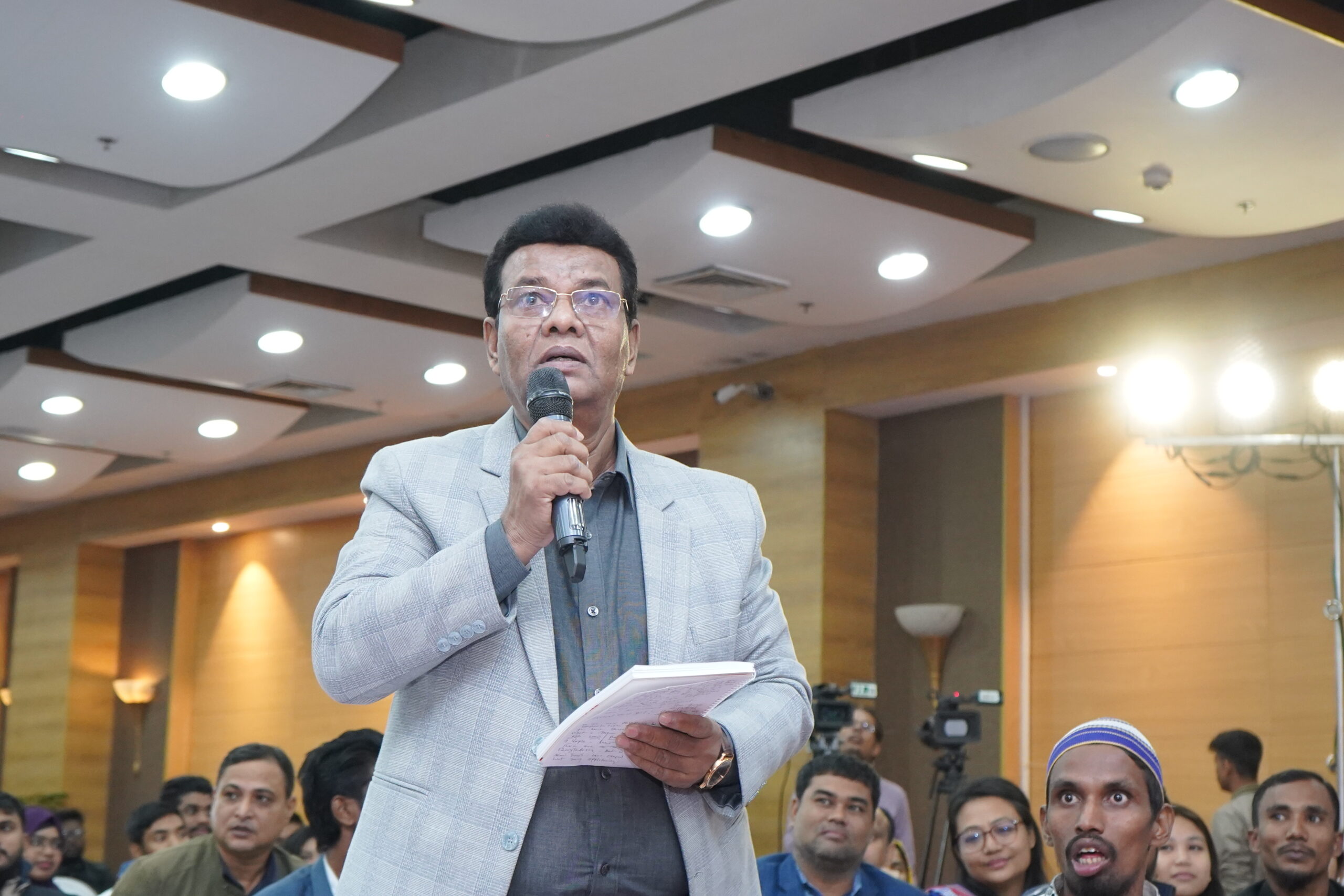
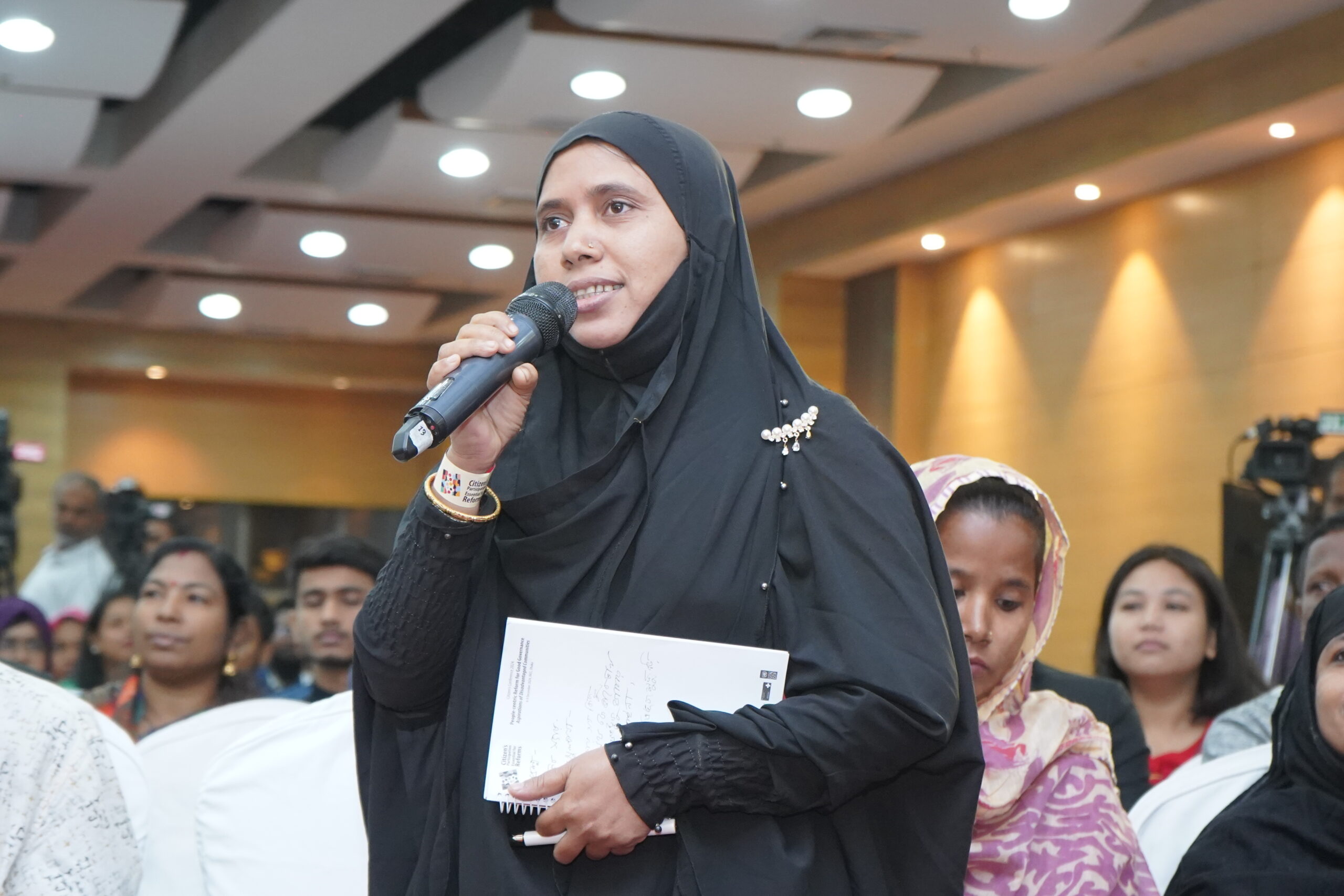
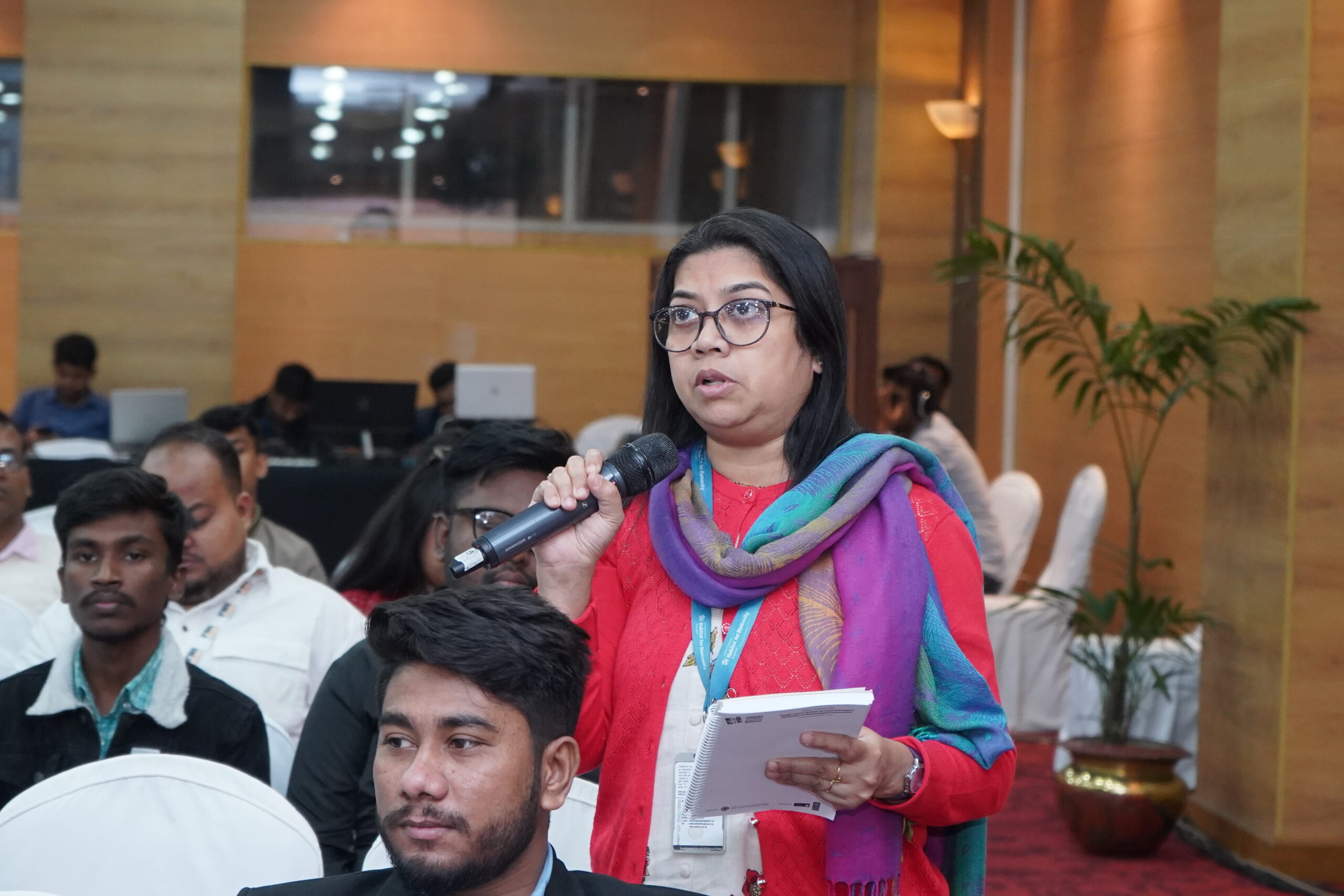
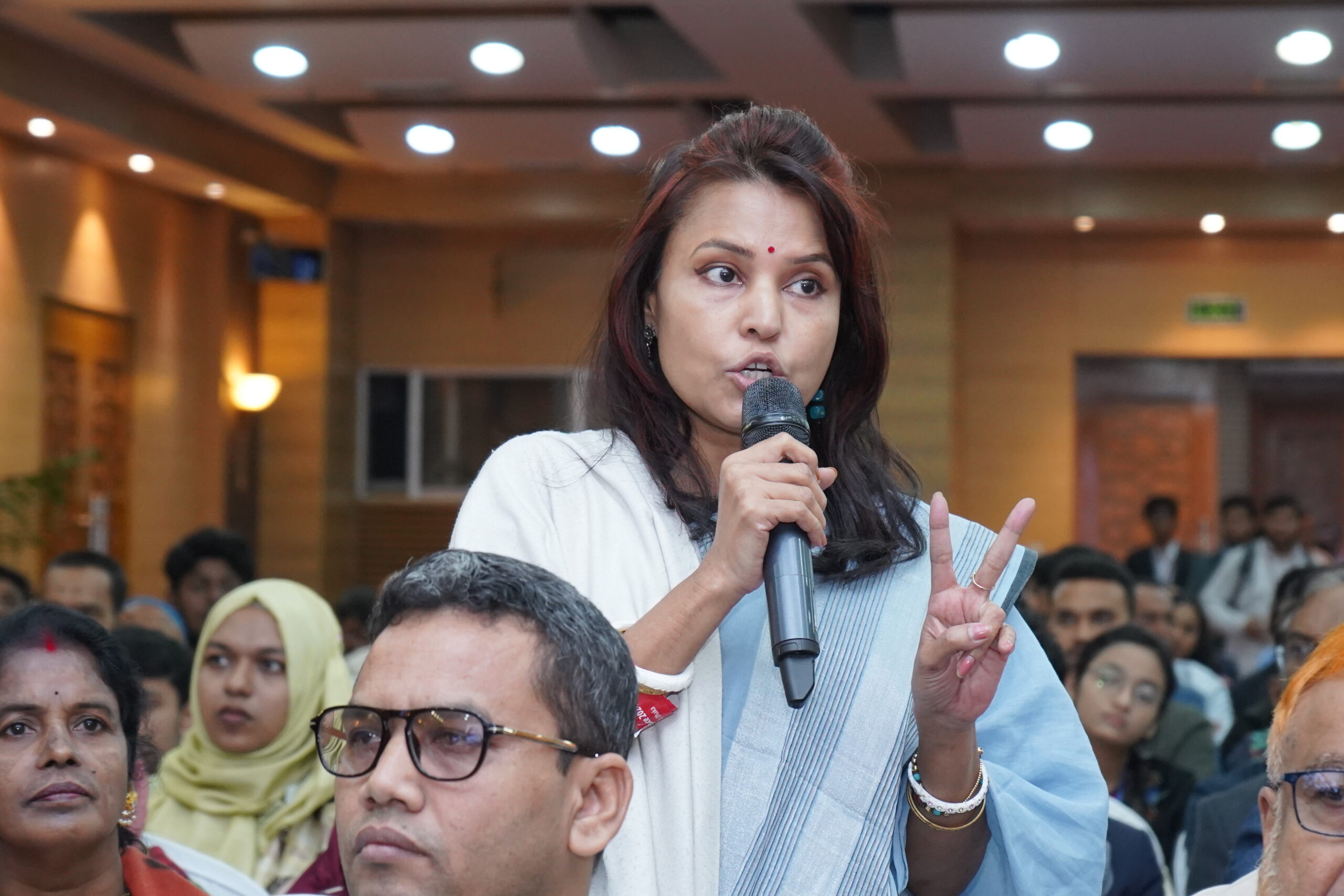
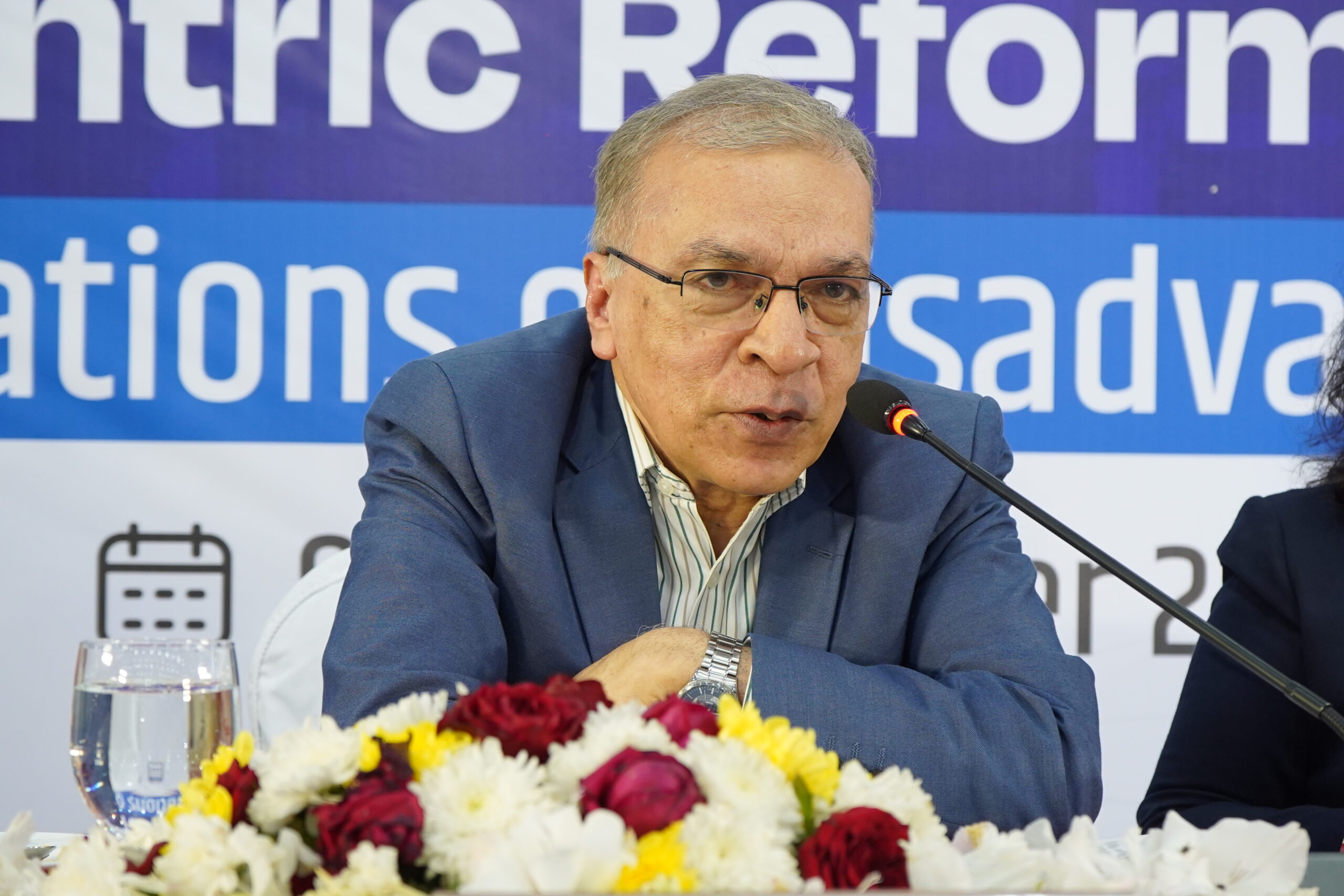
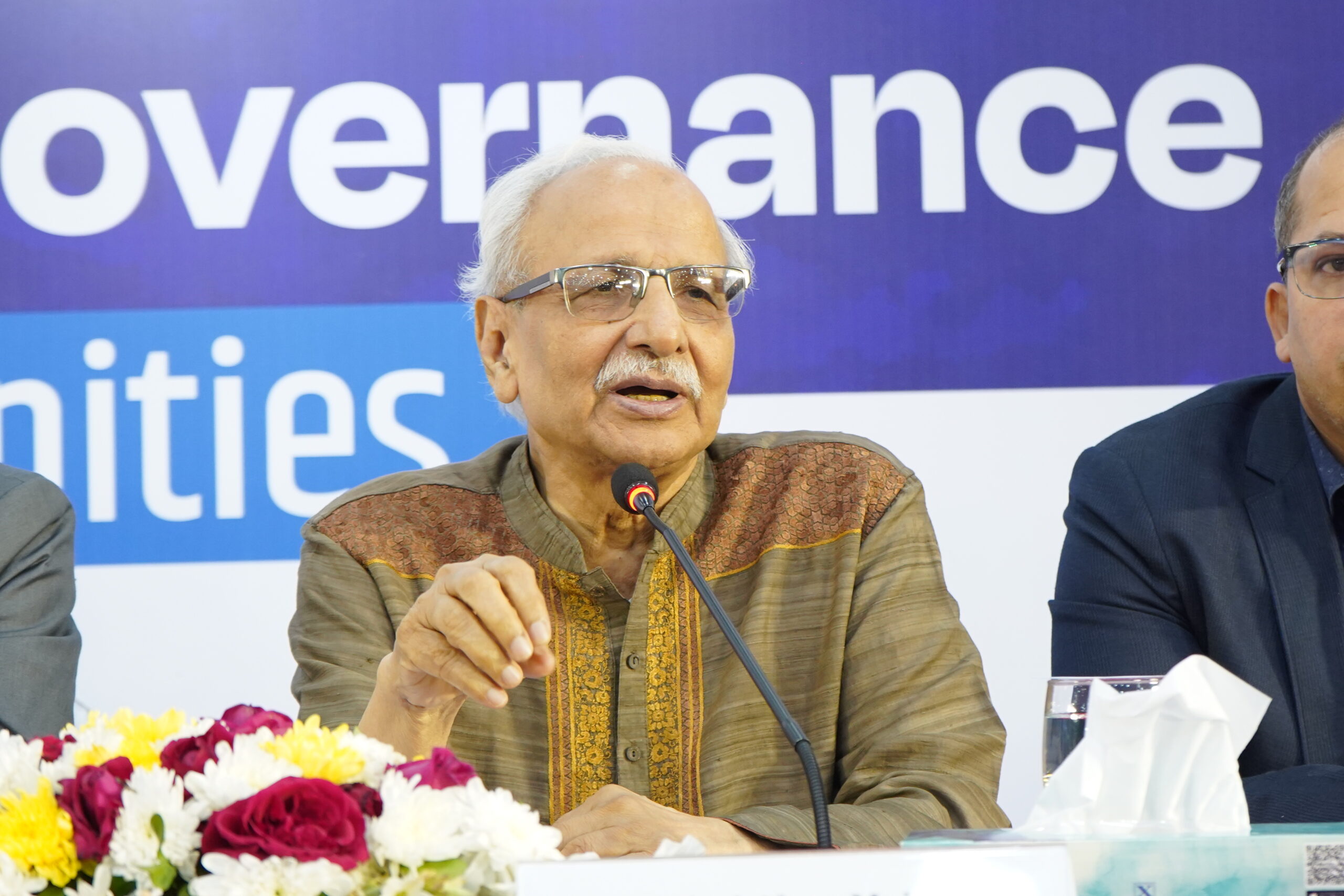
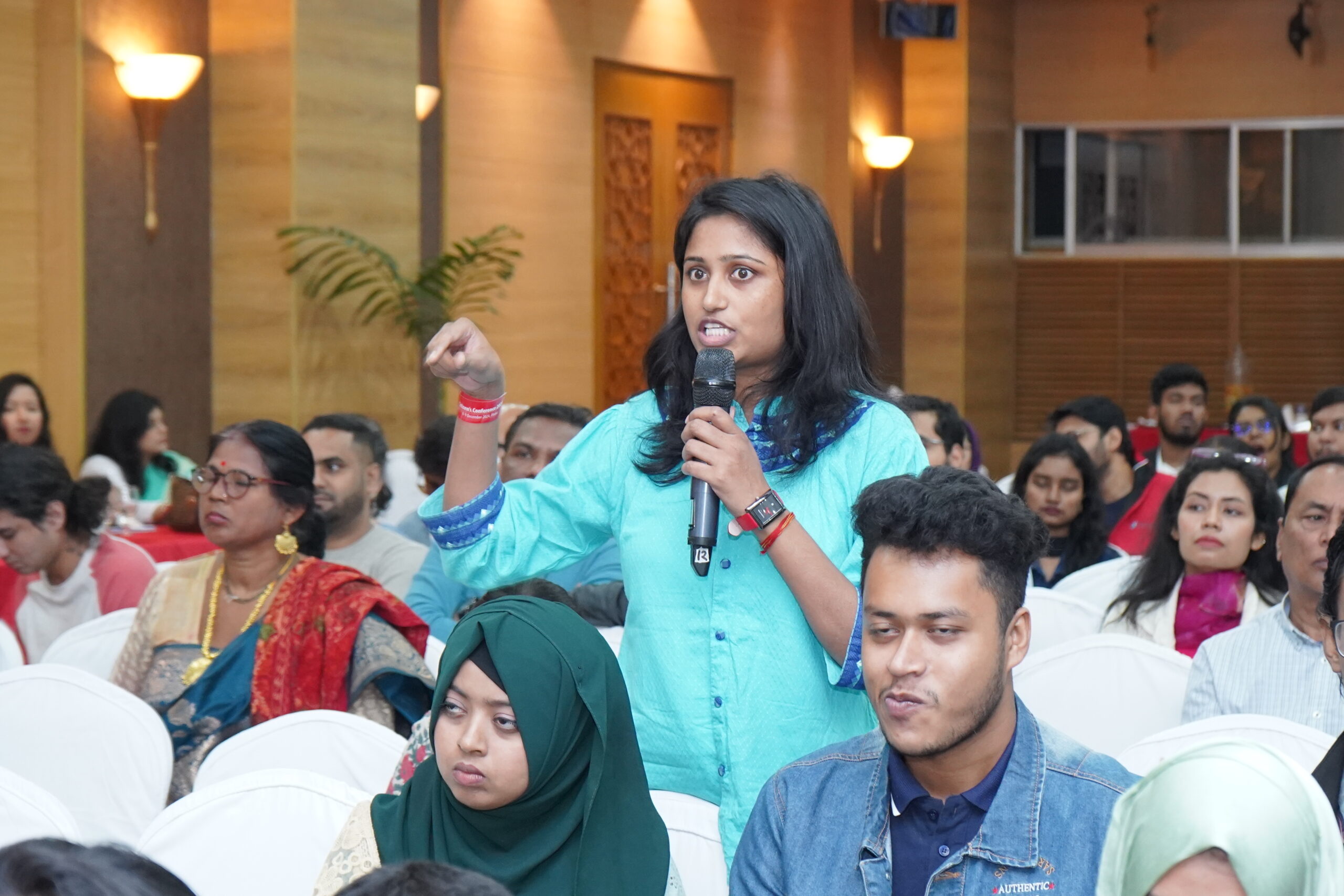
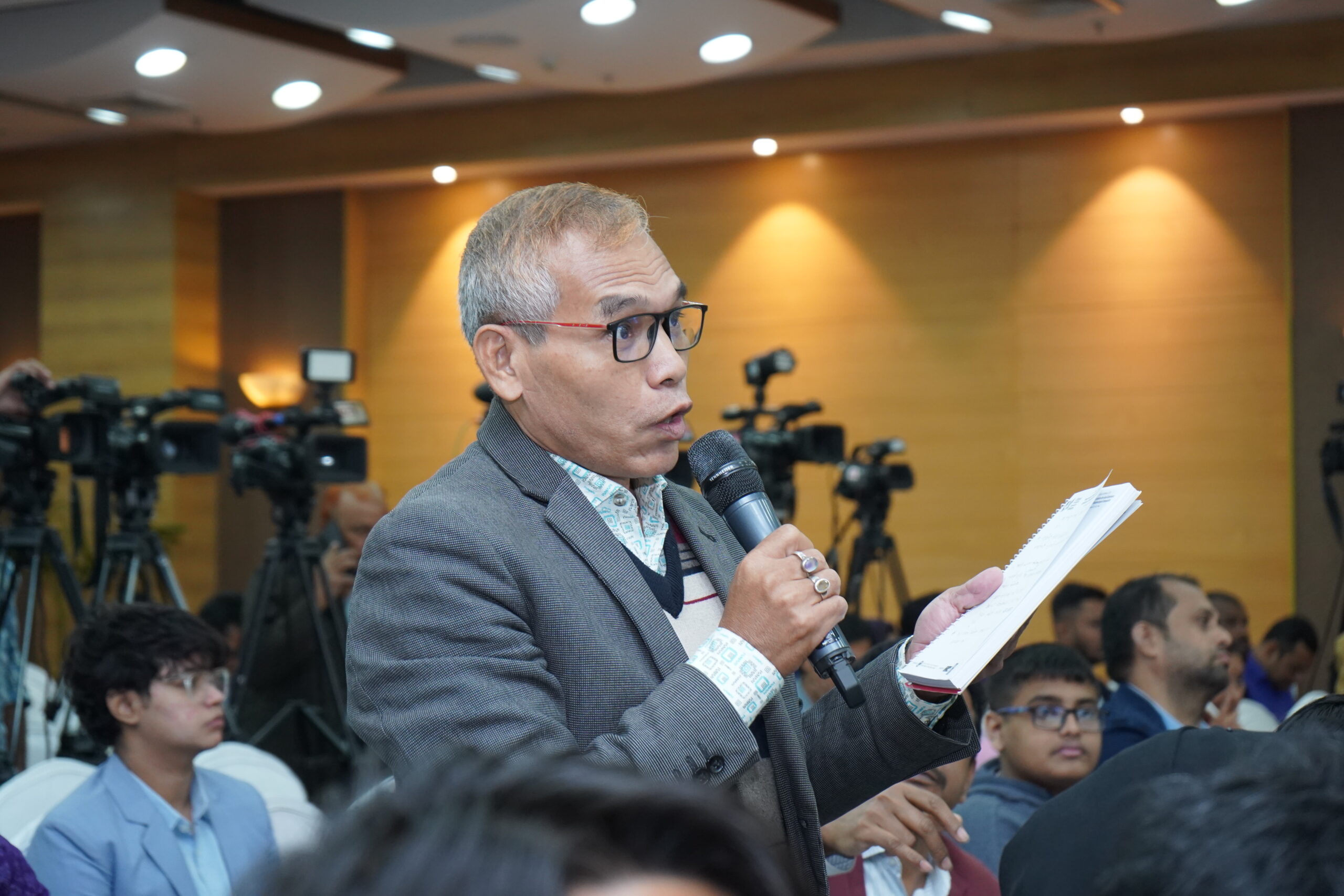
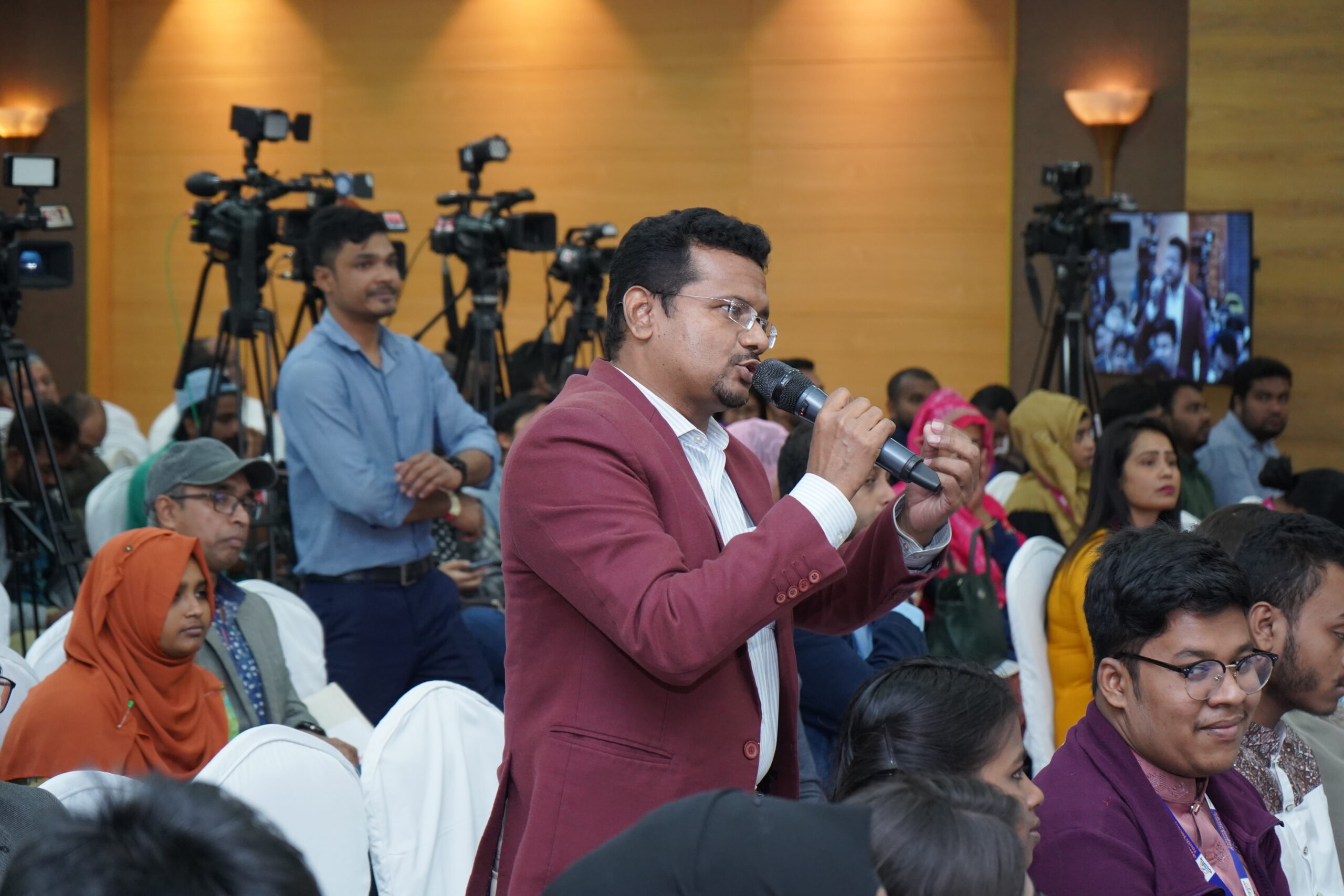
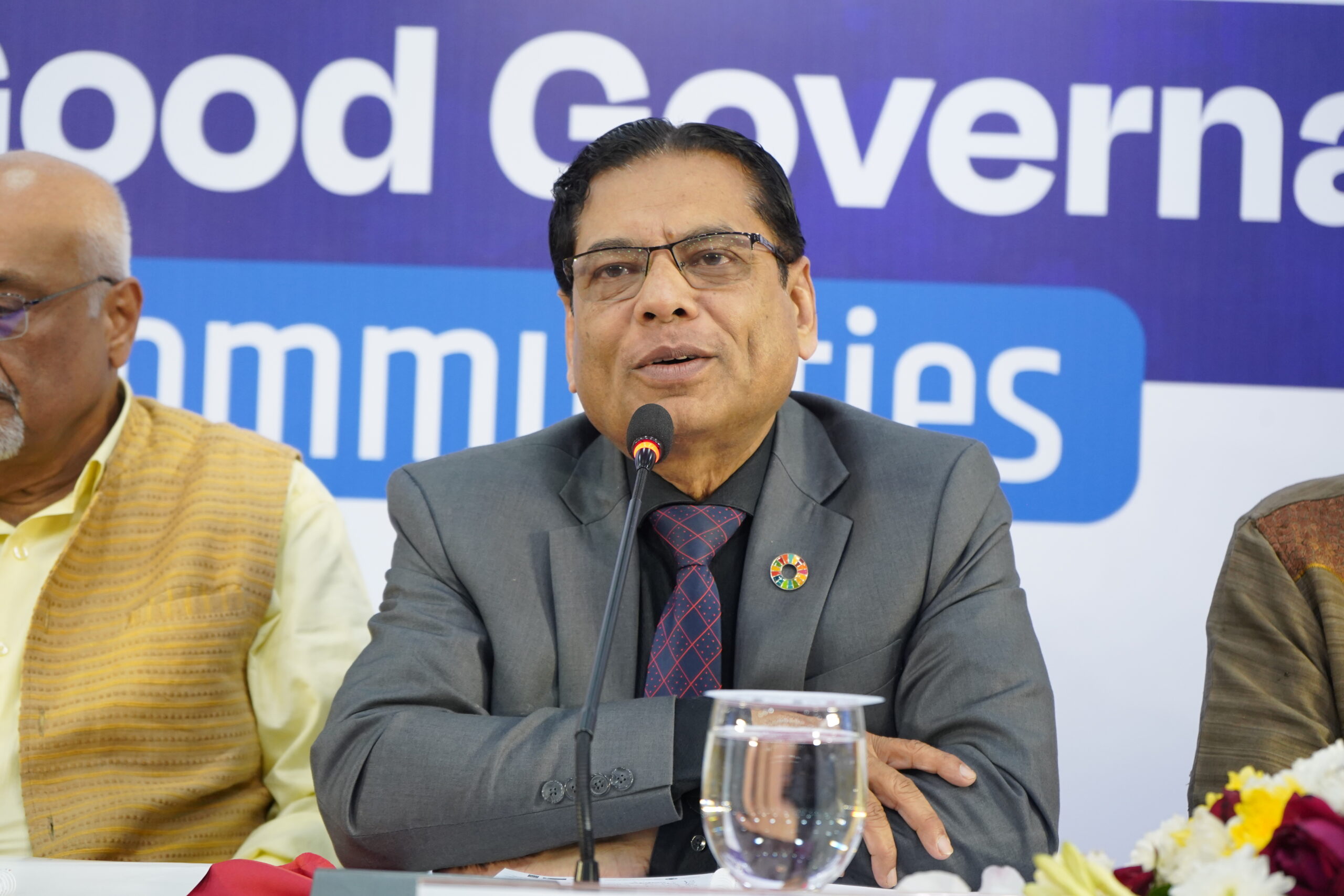
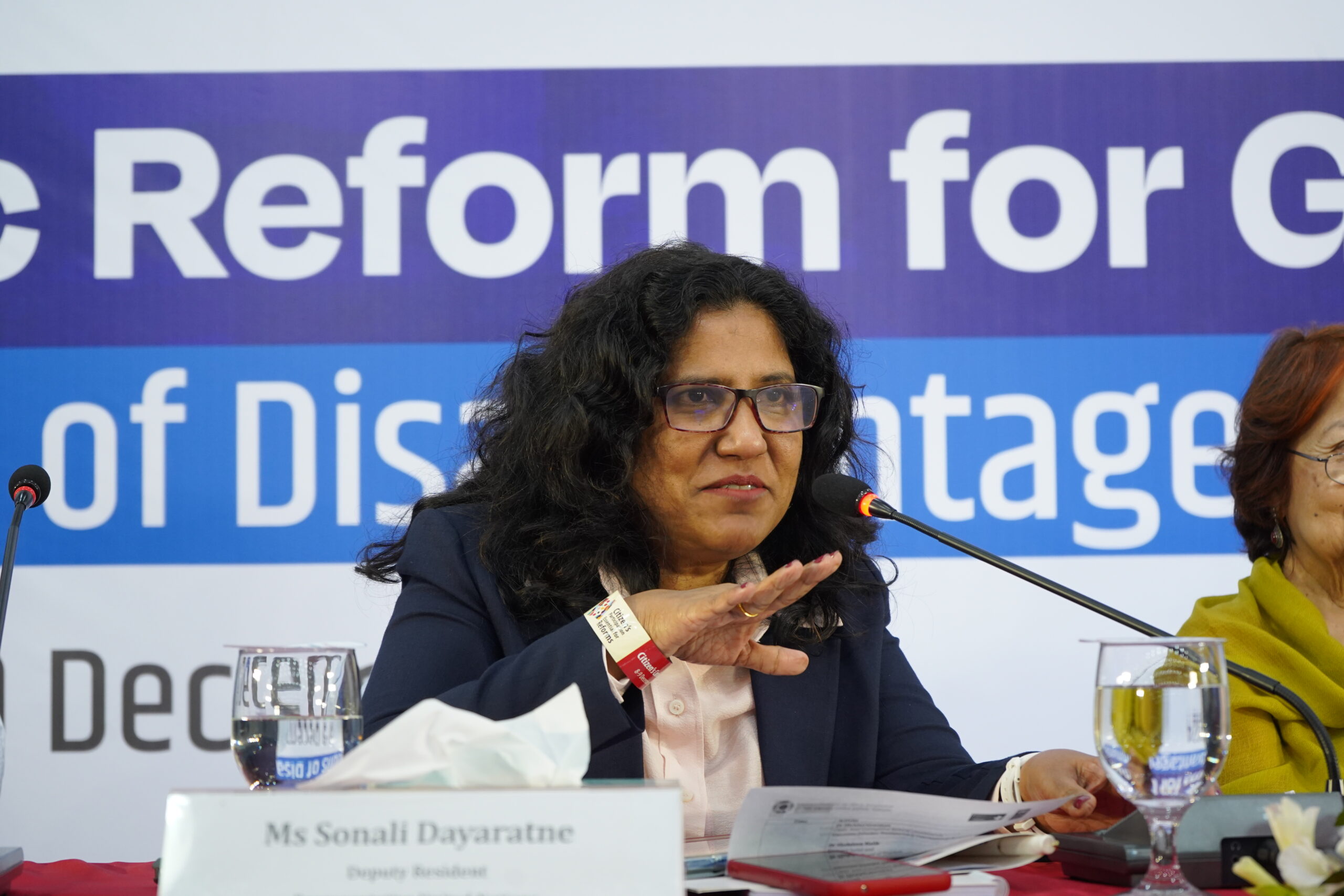
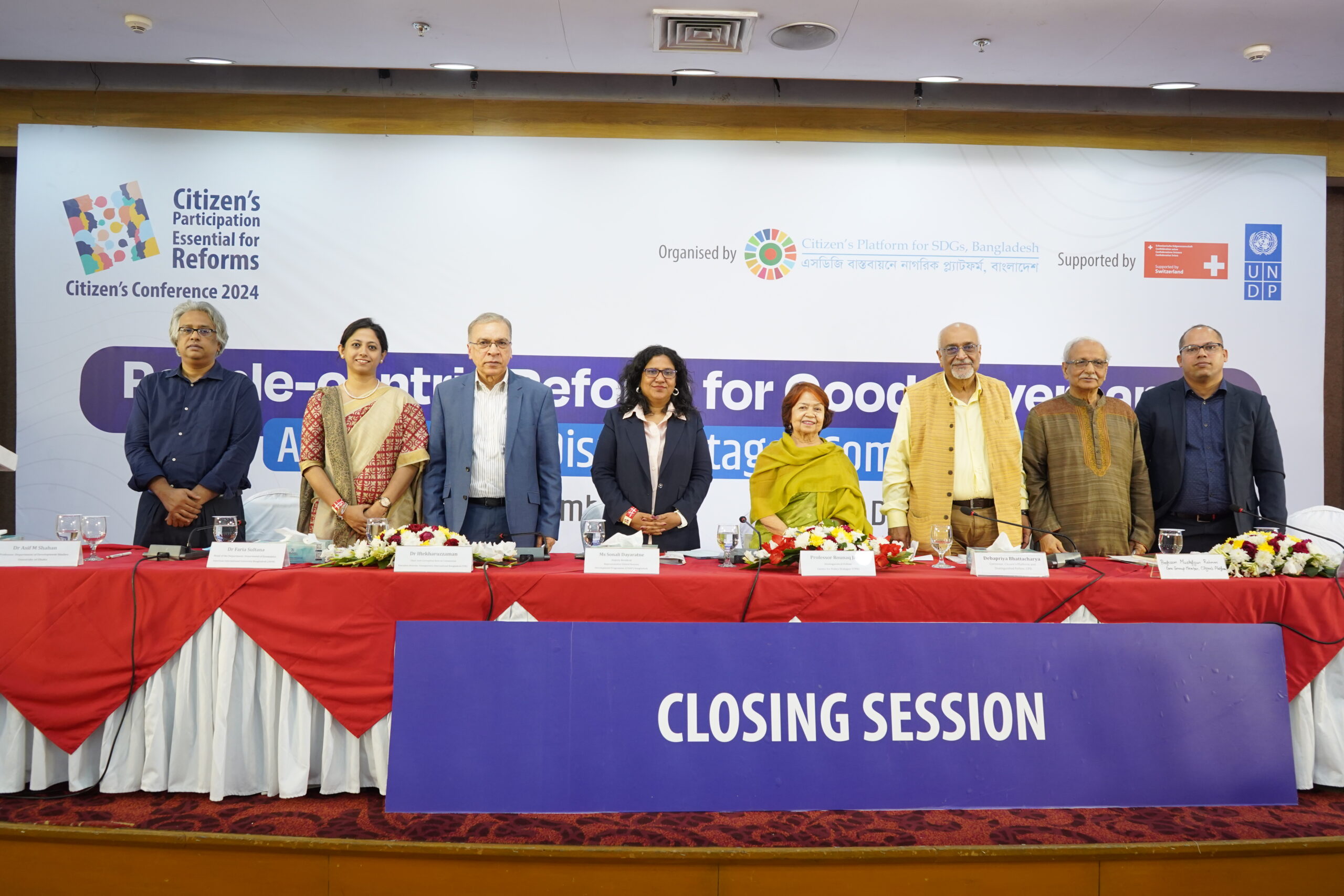
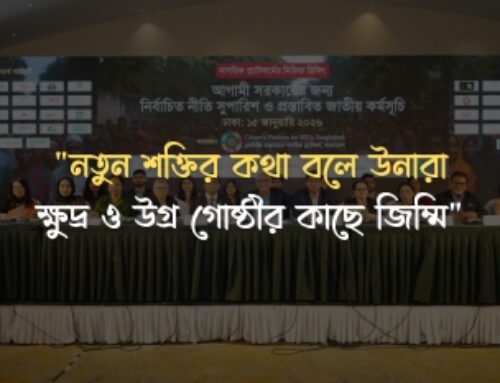
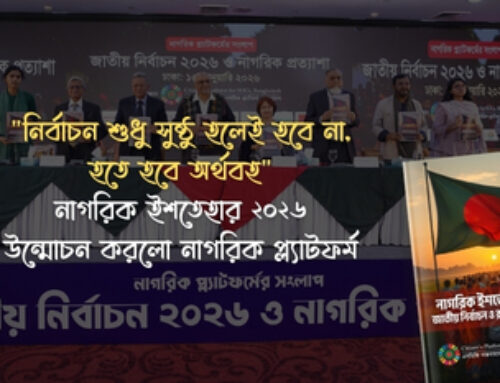

Leave A Comment